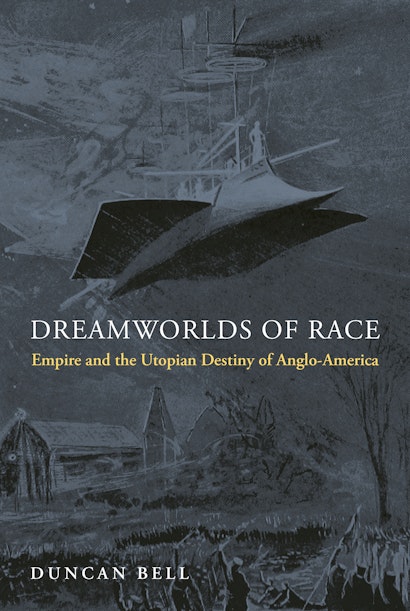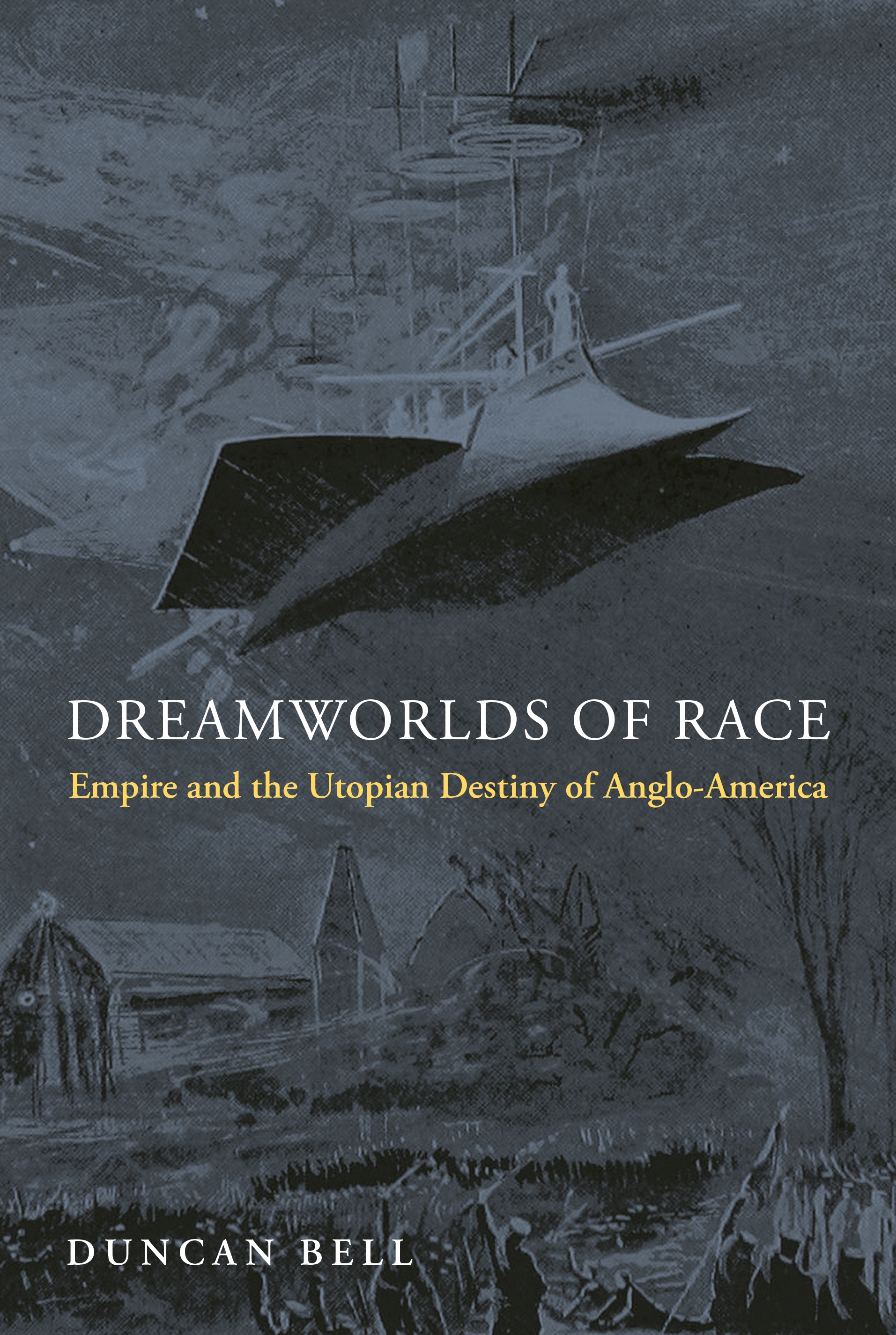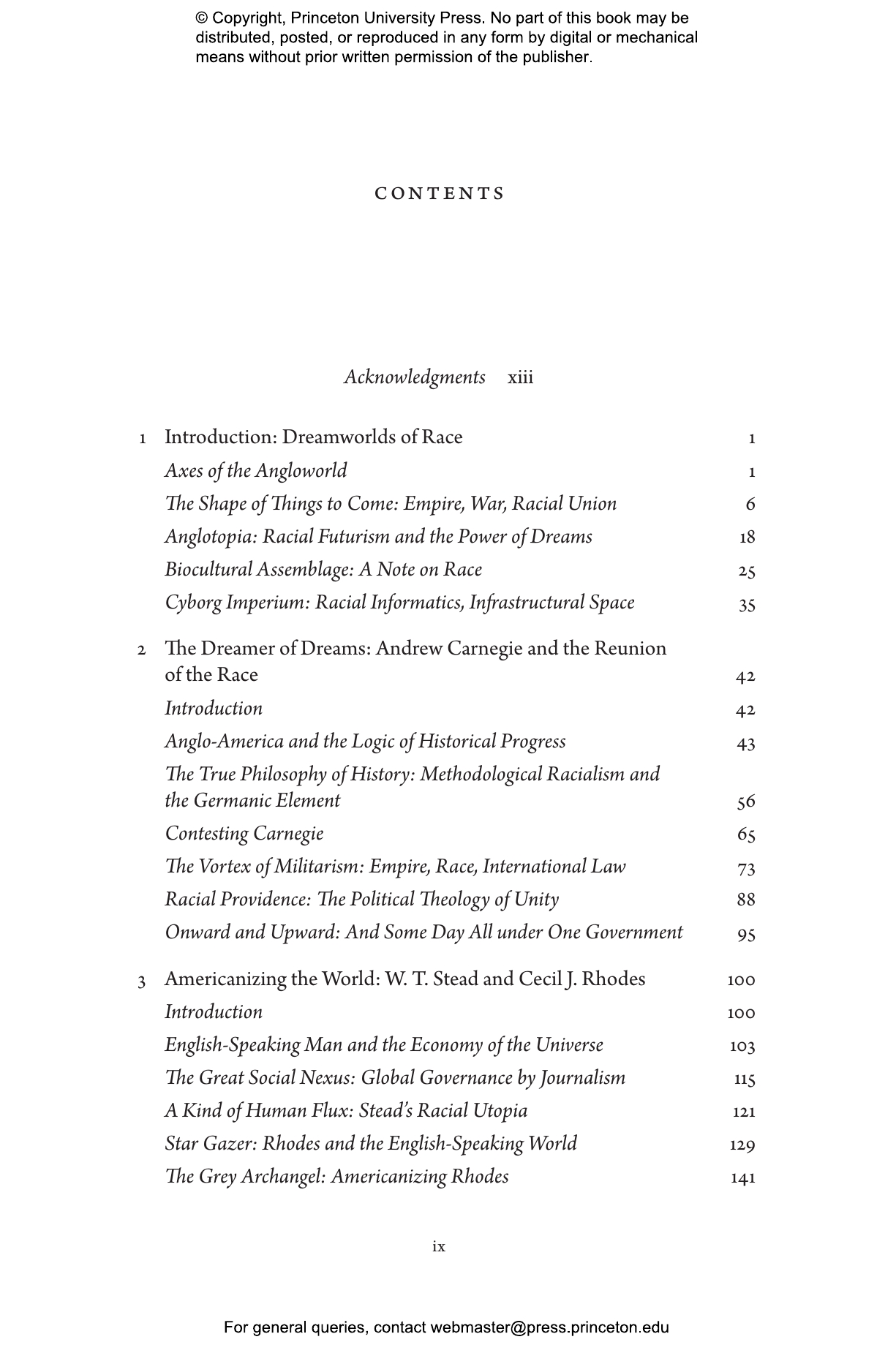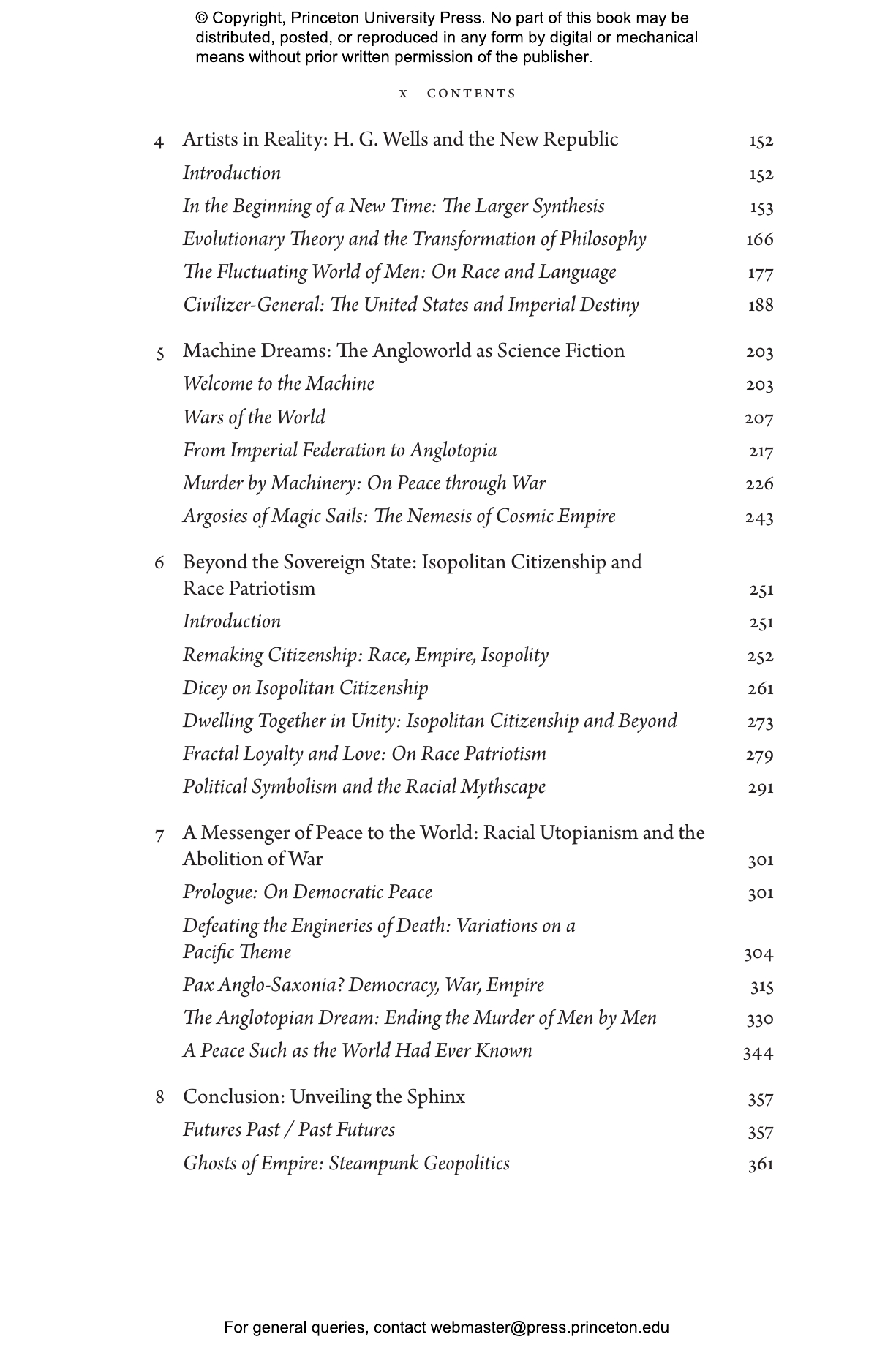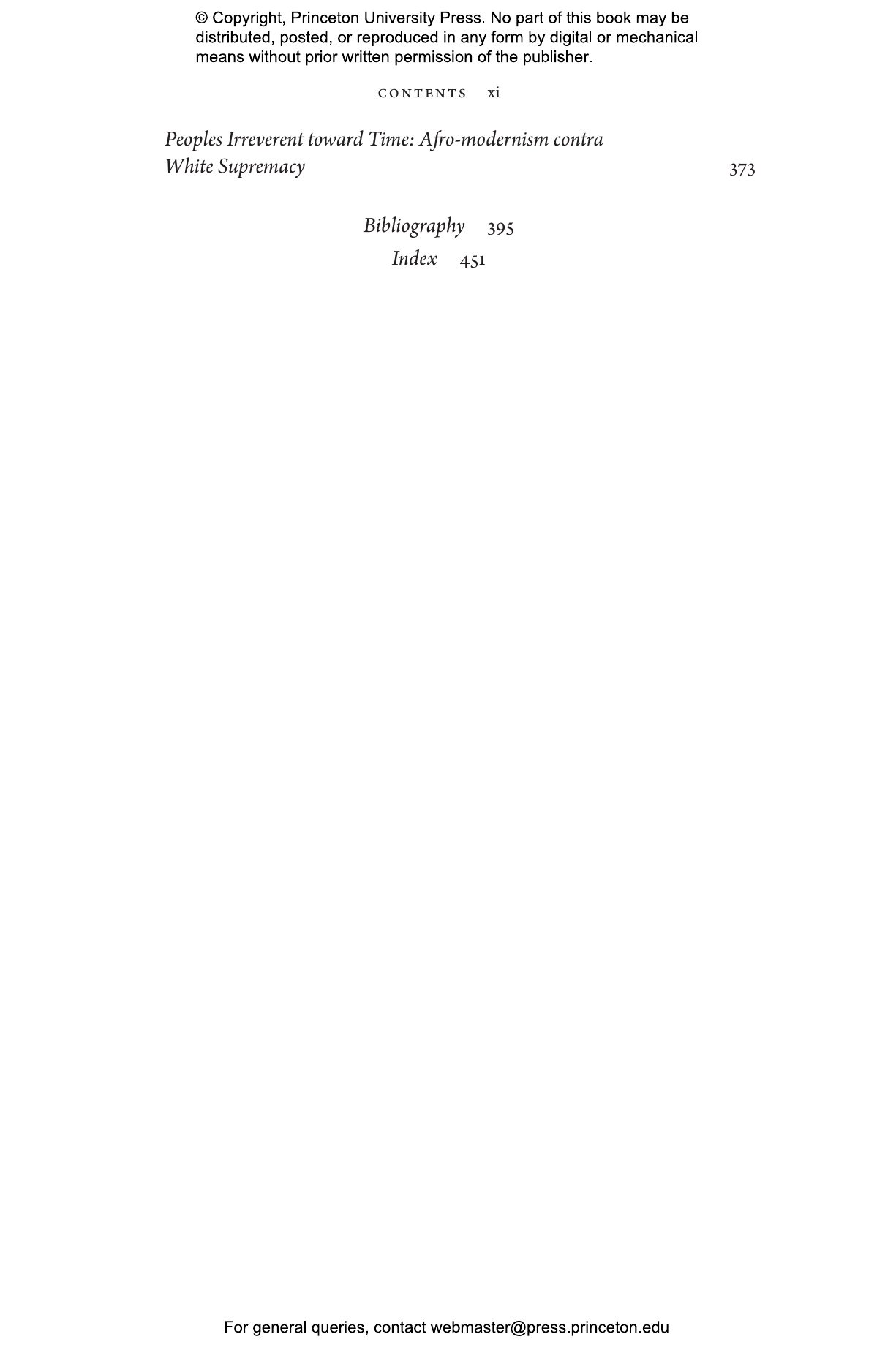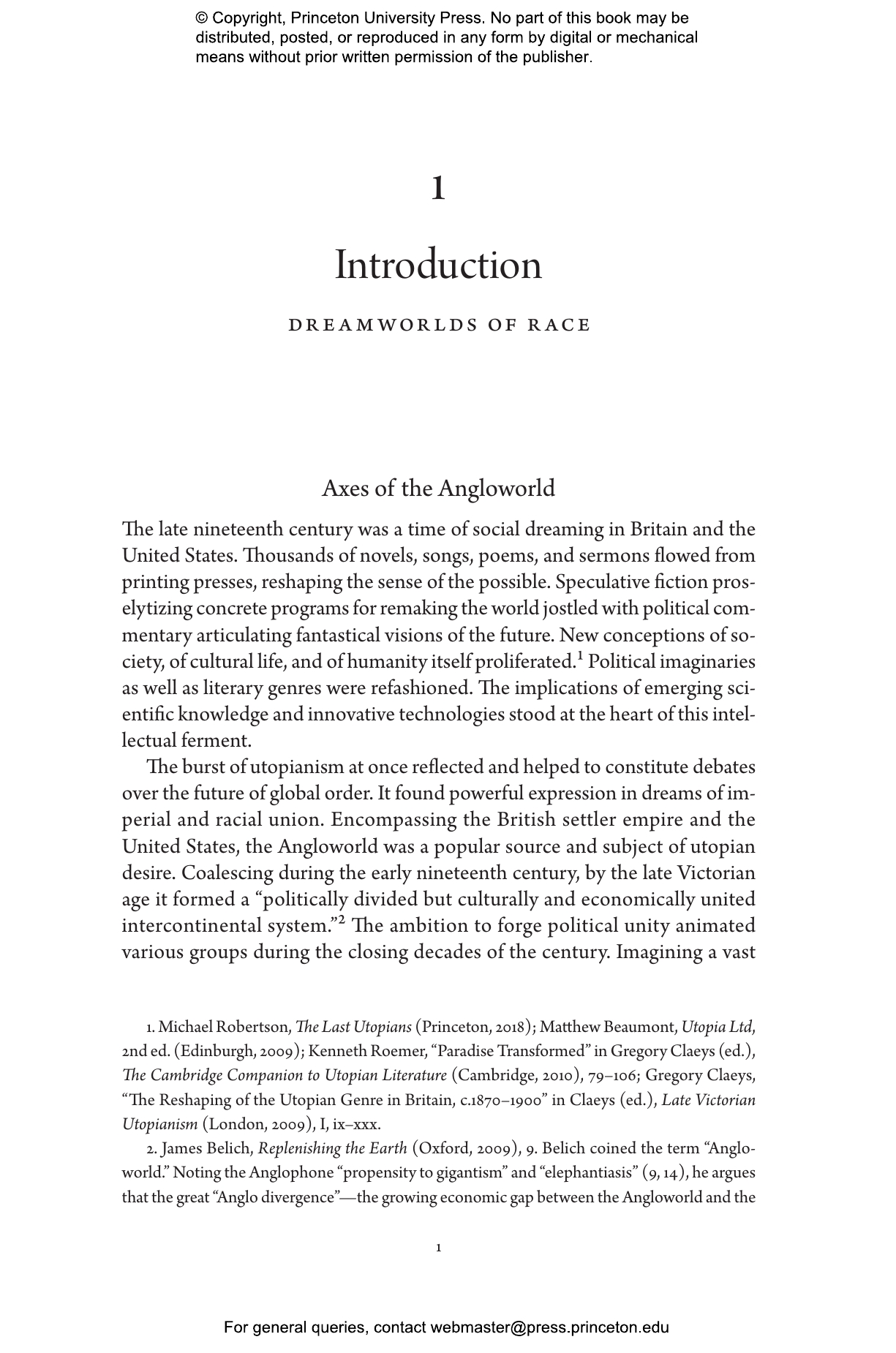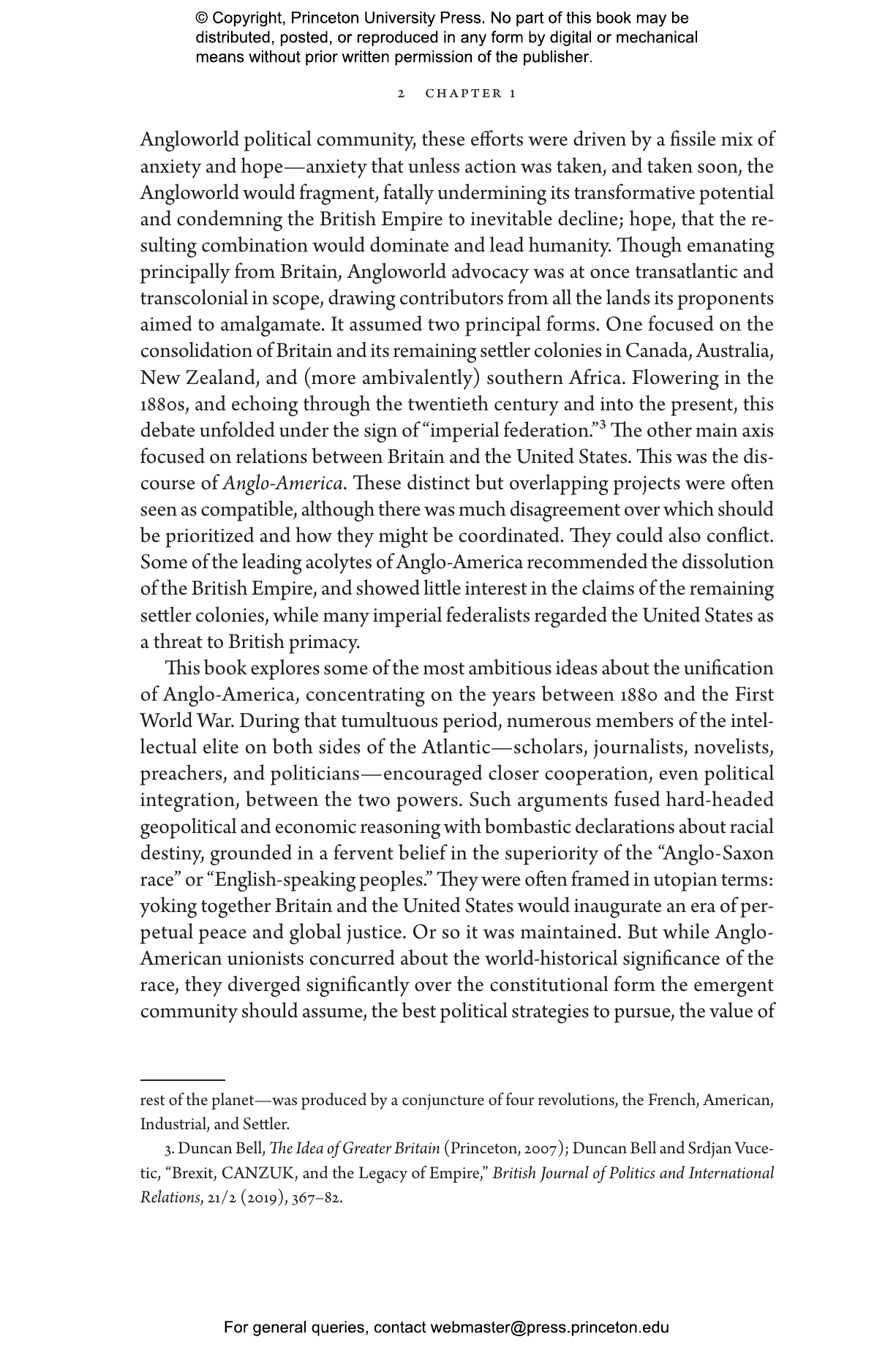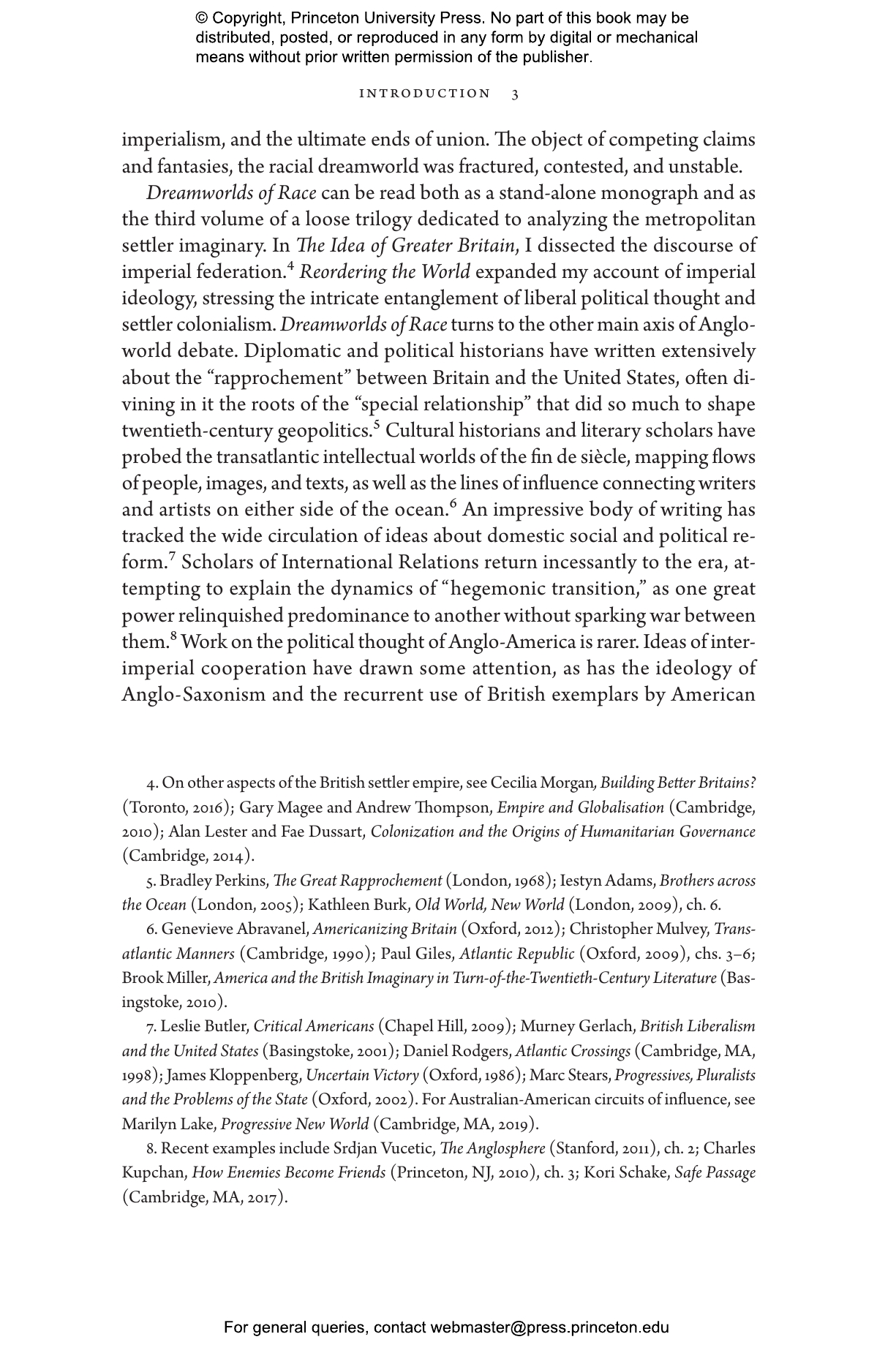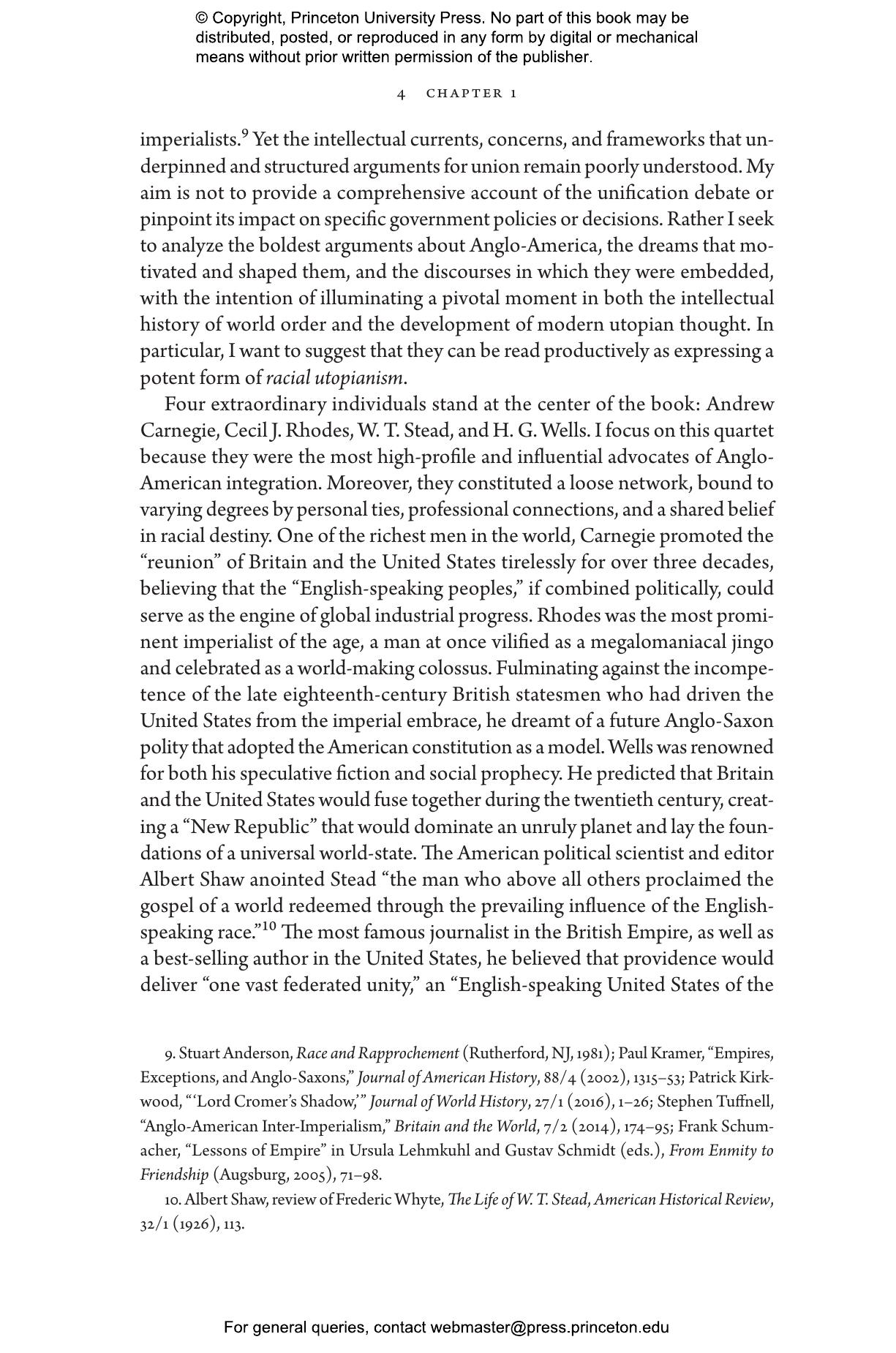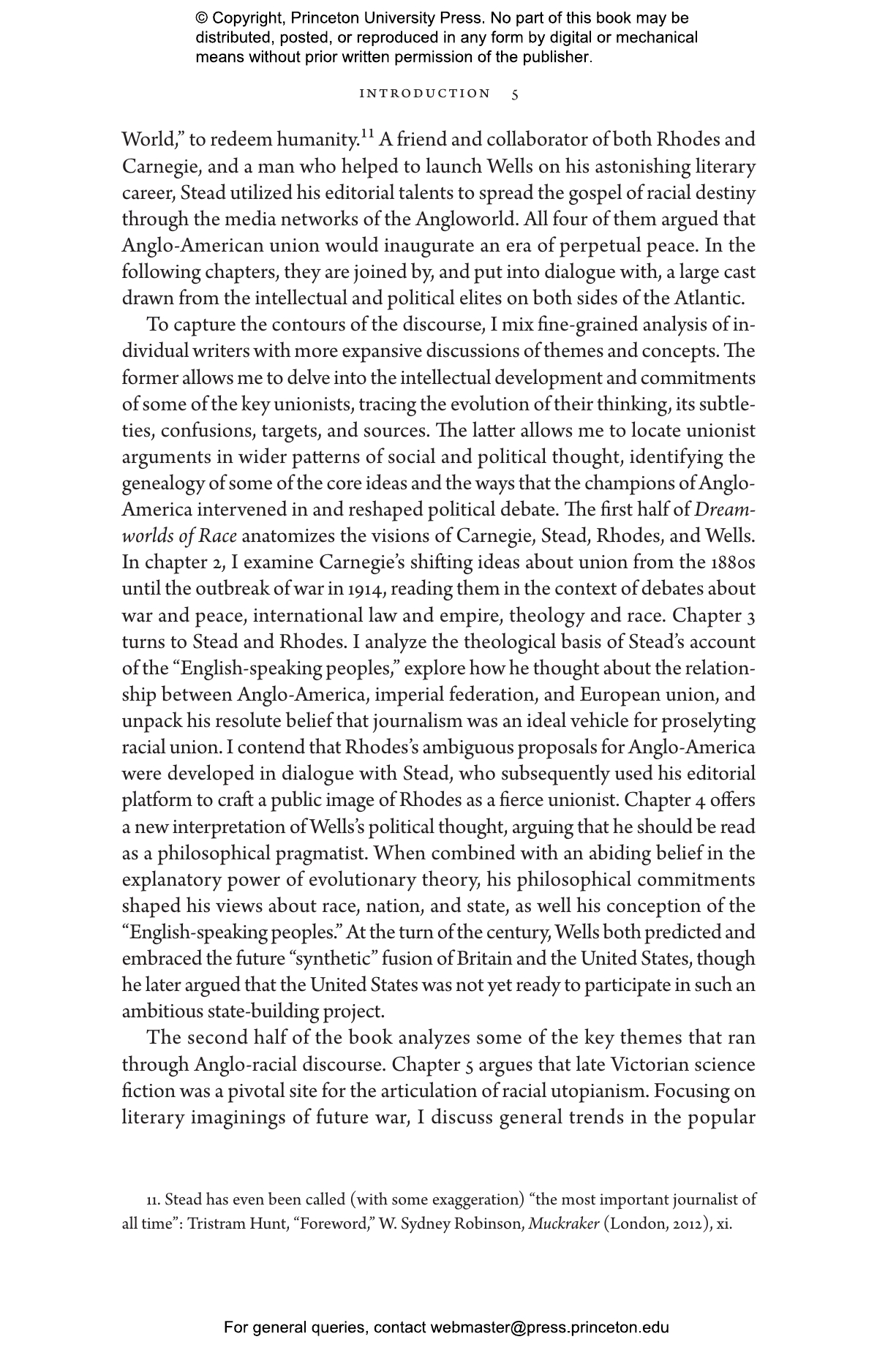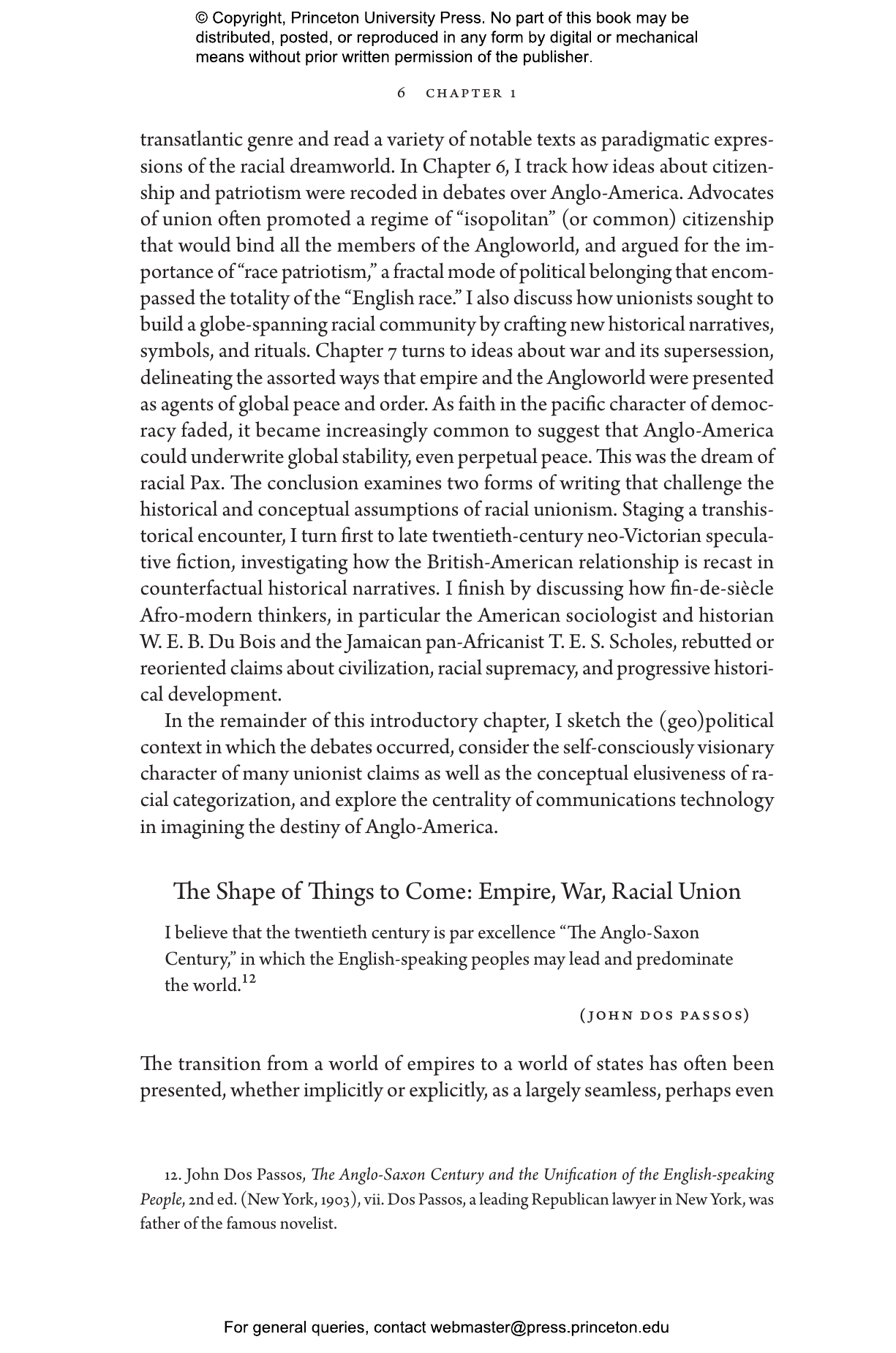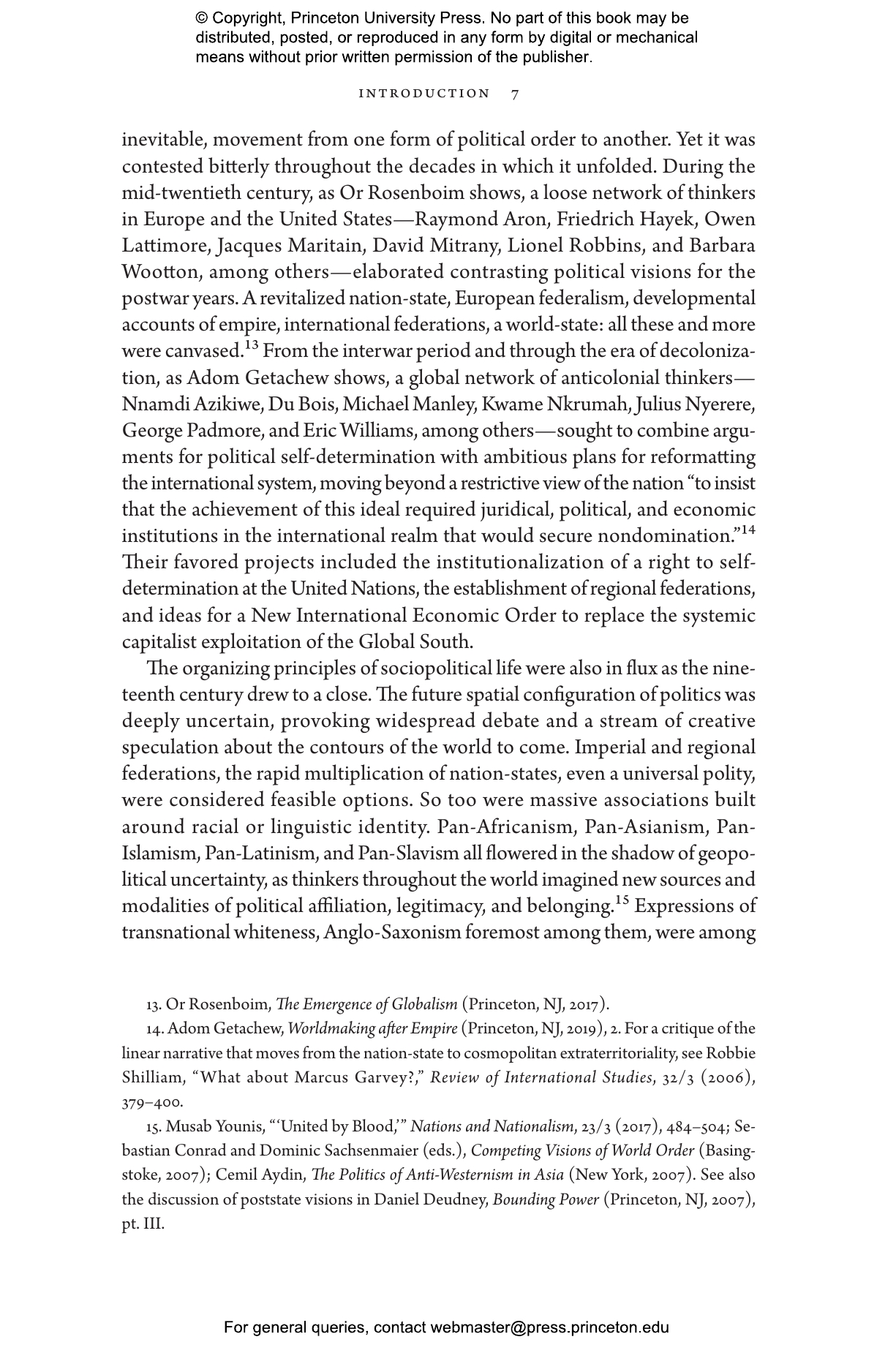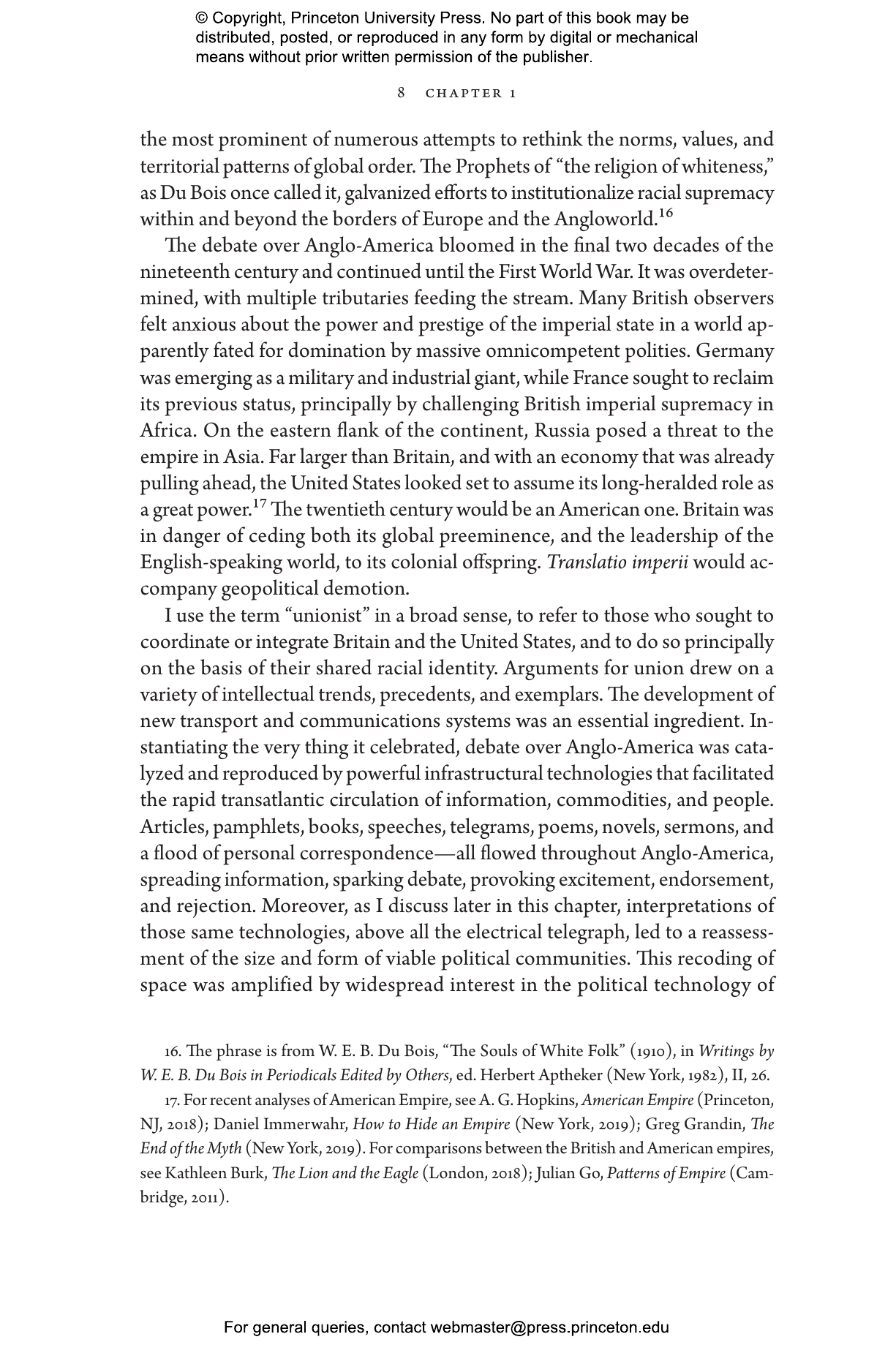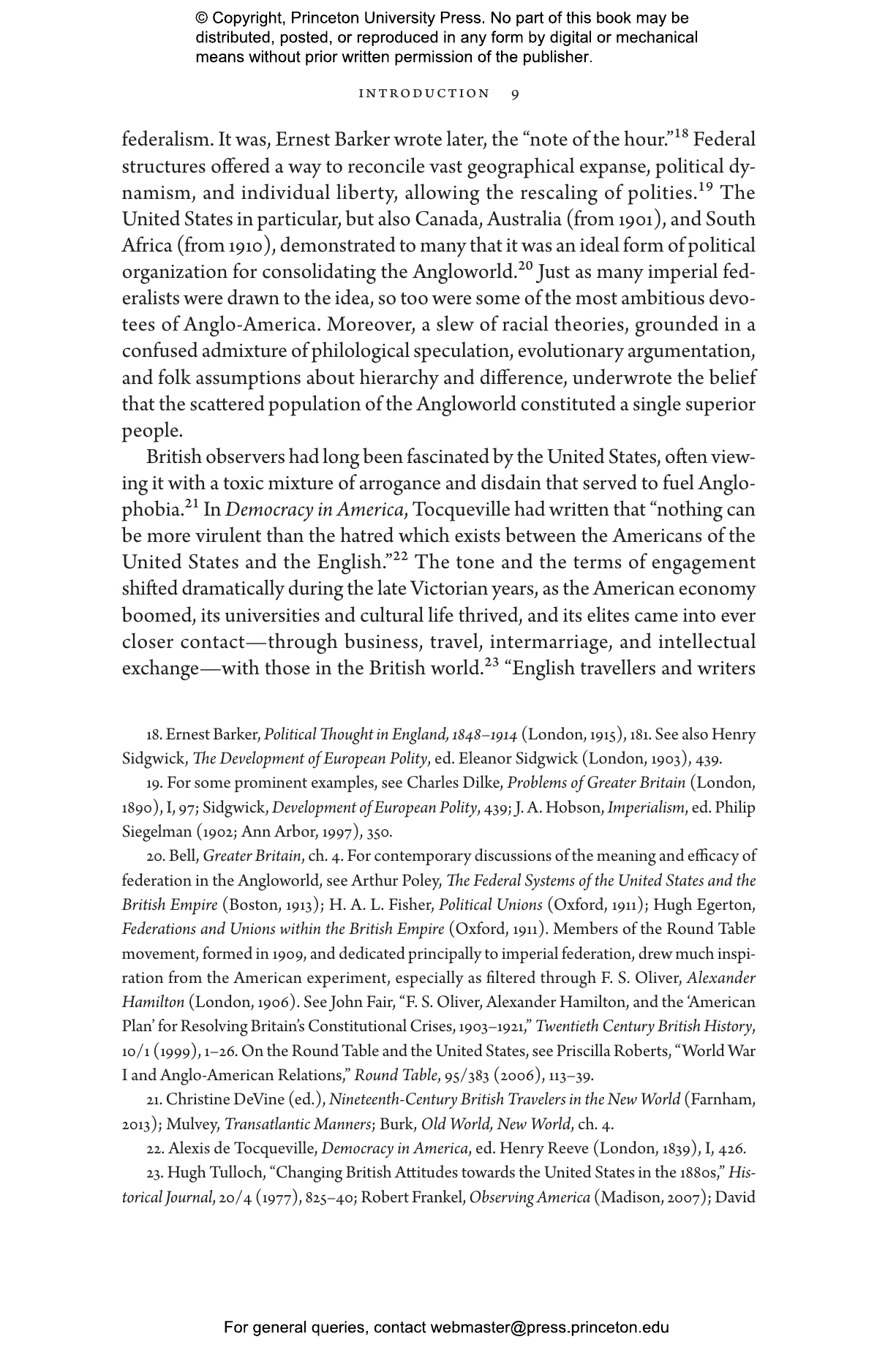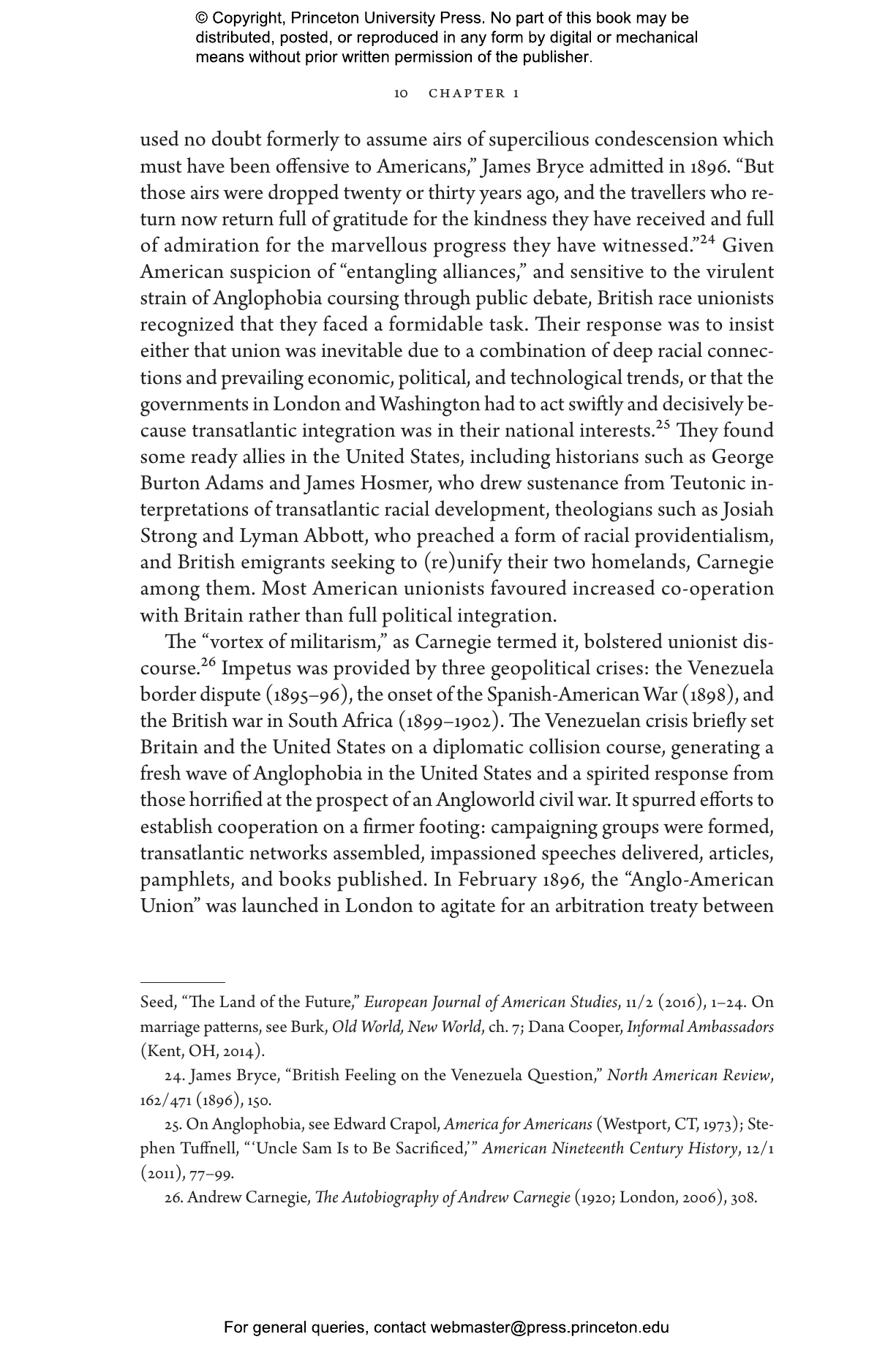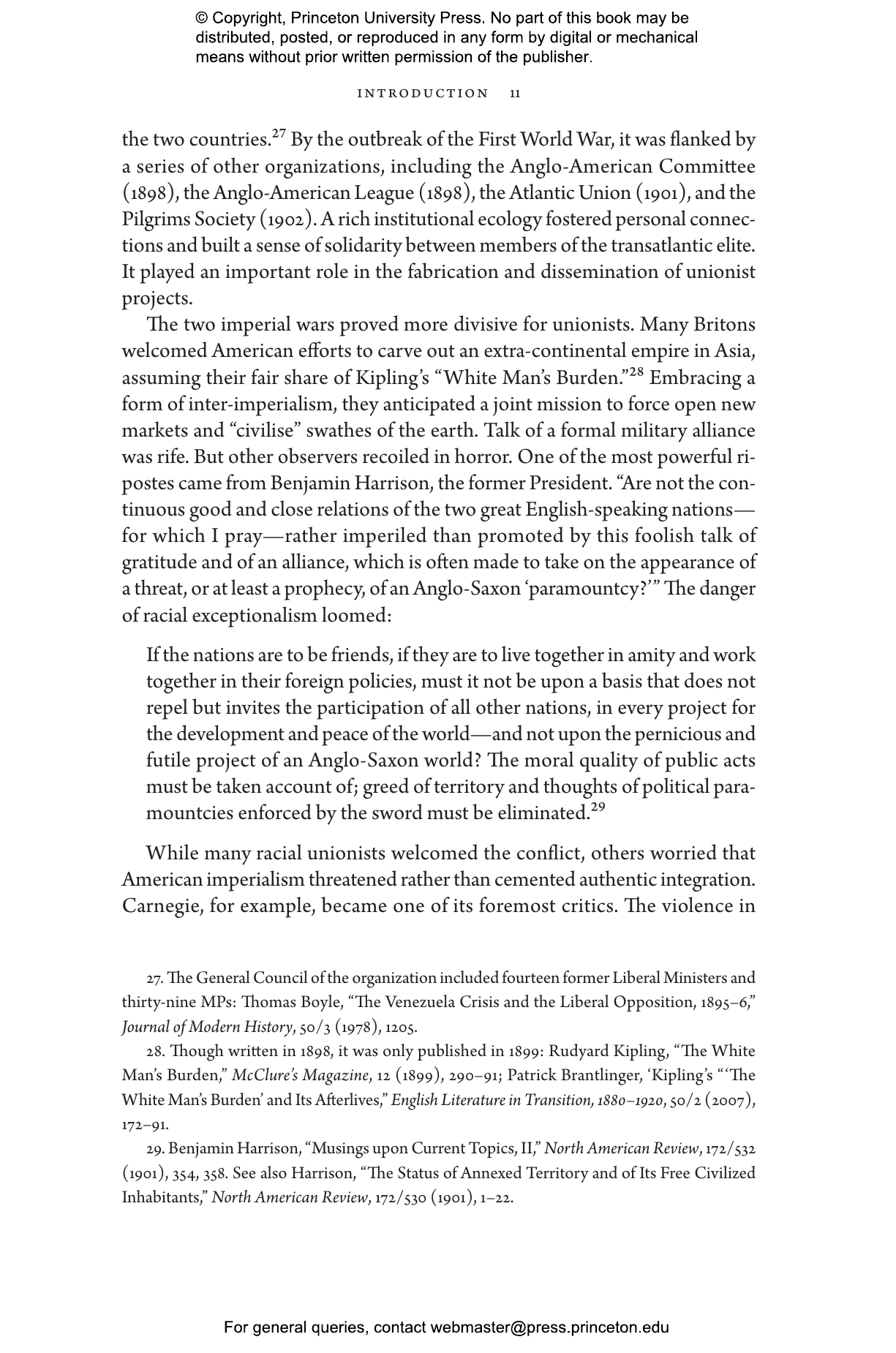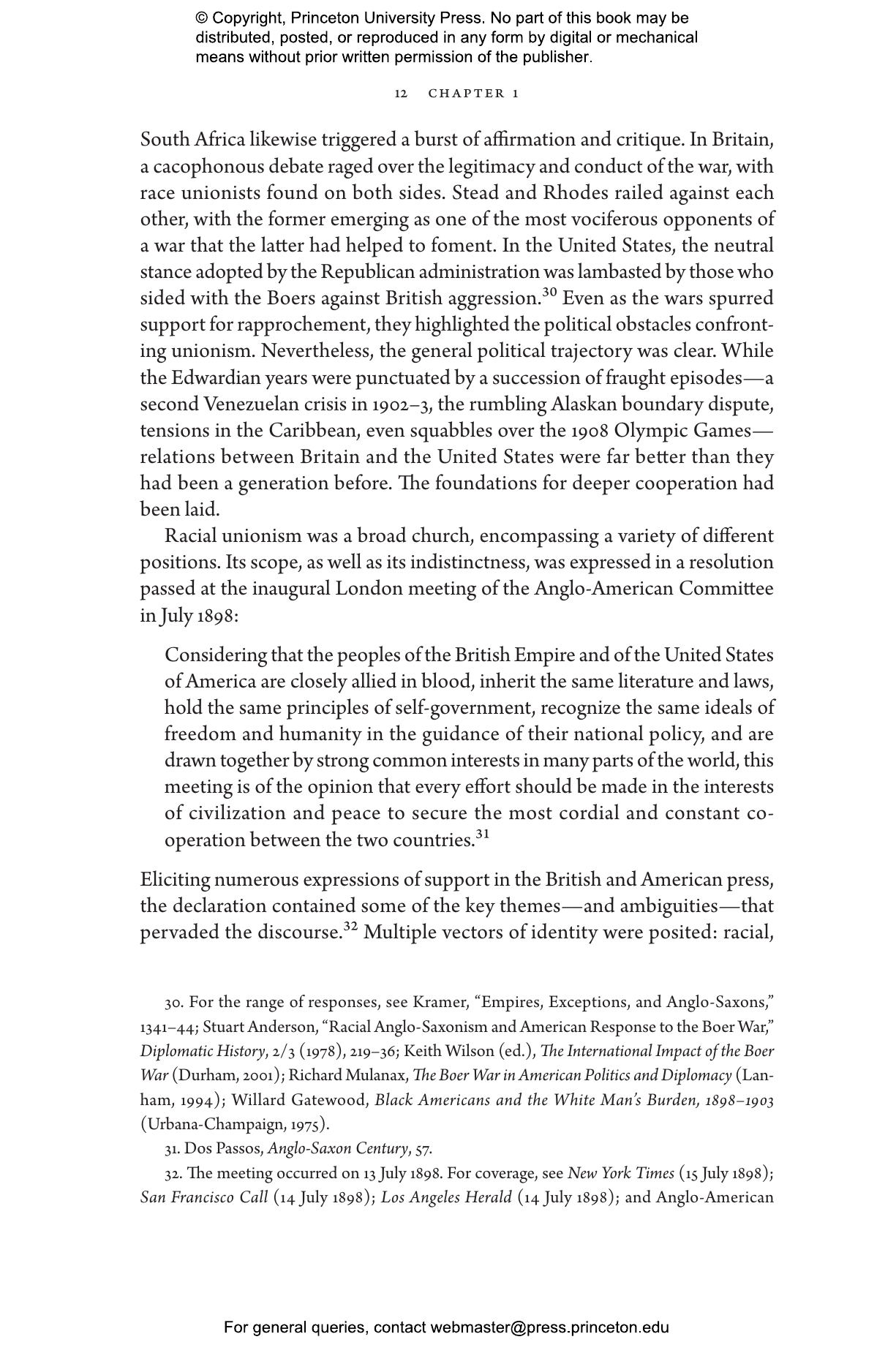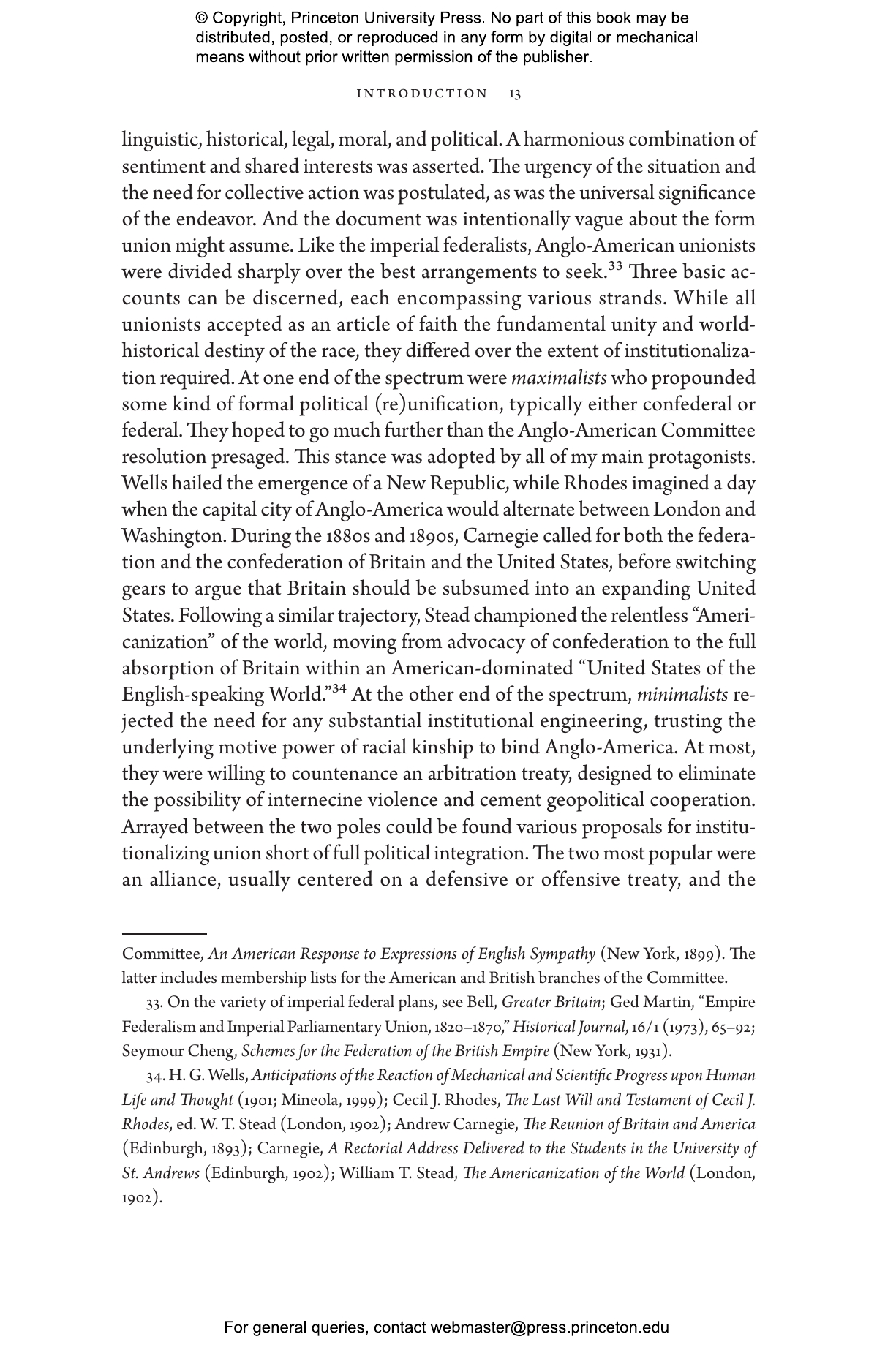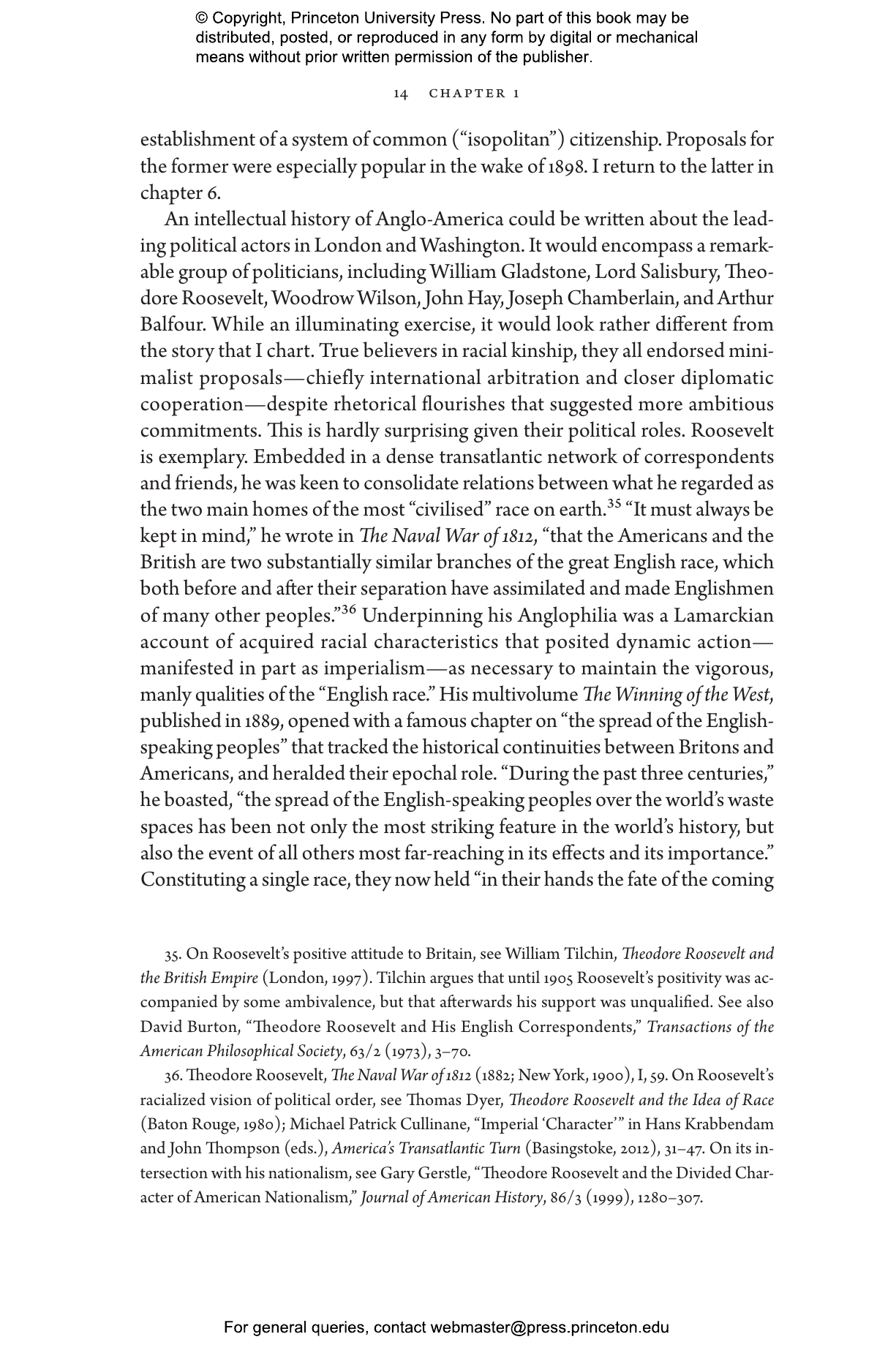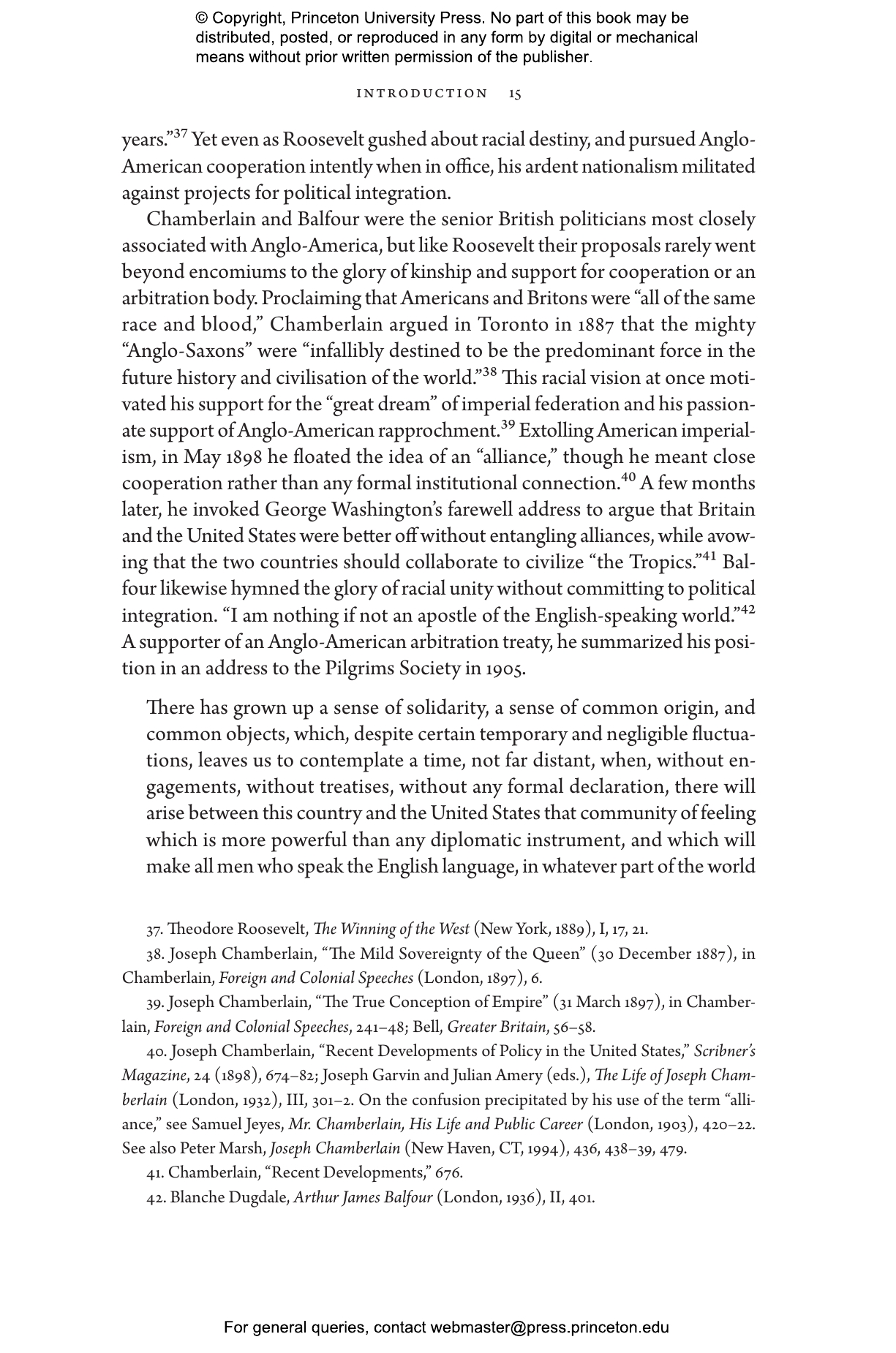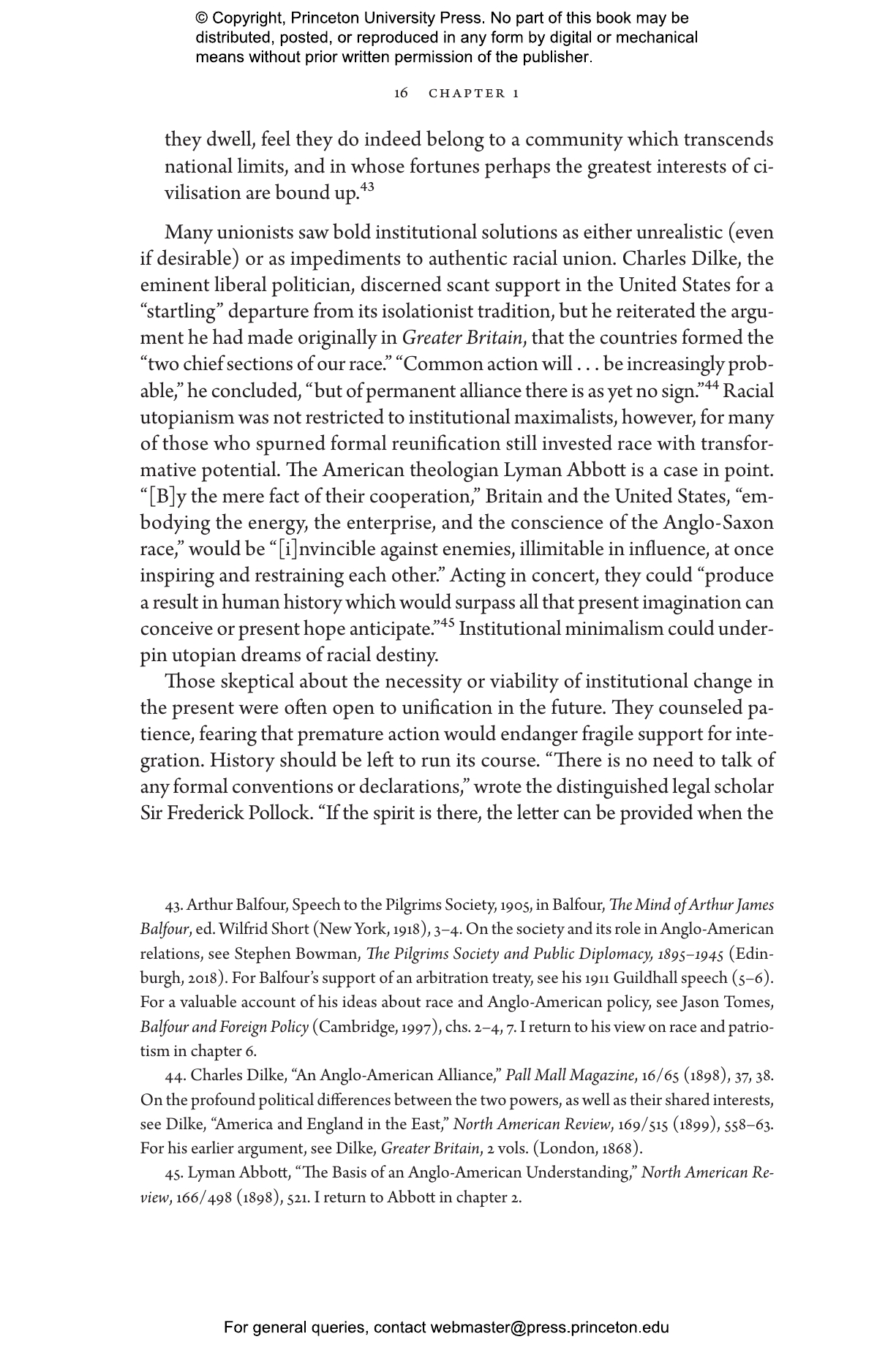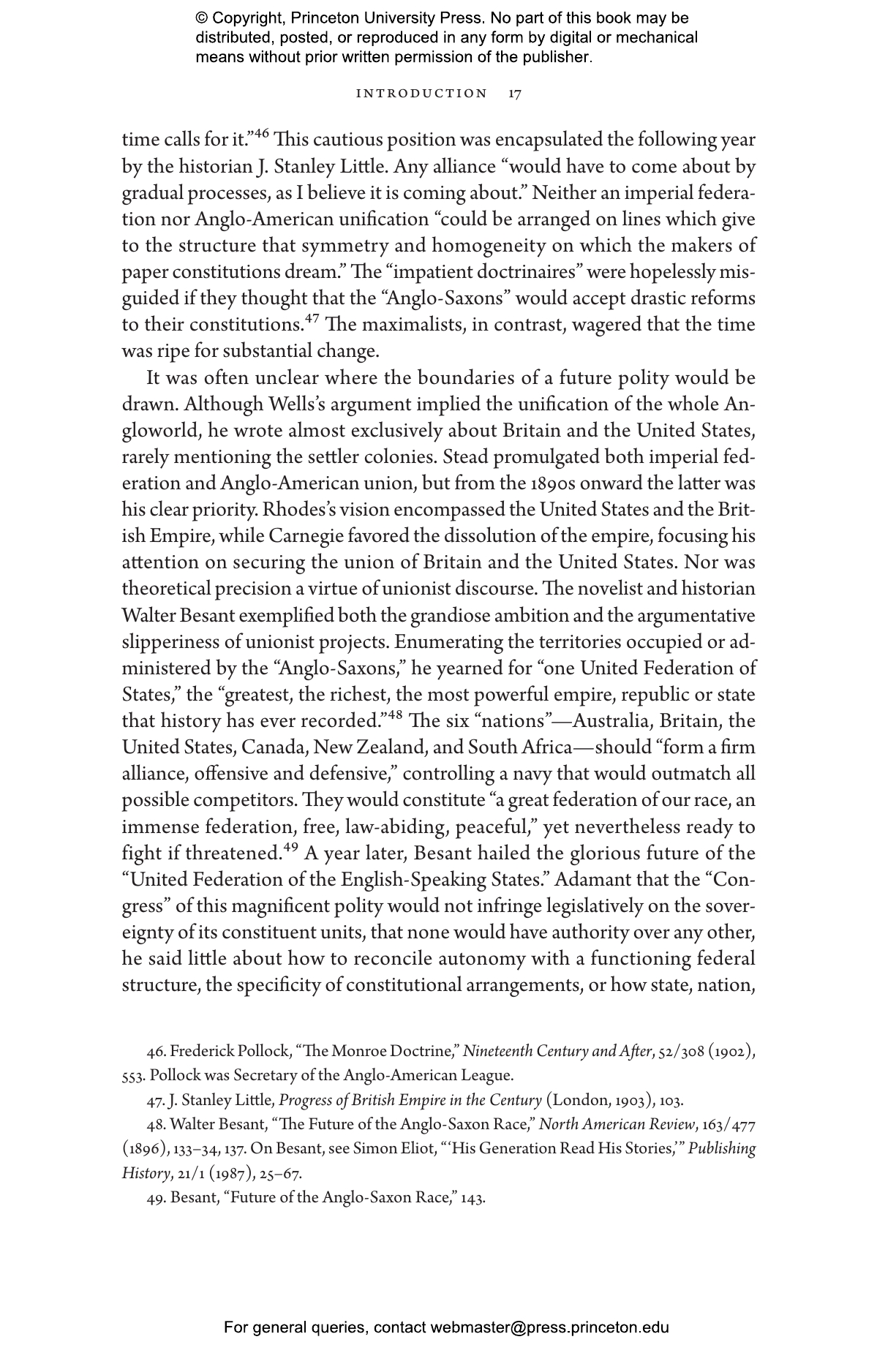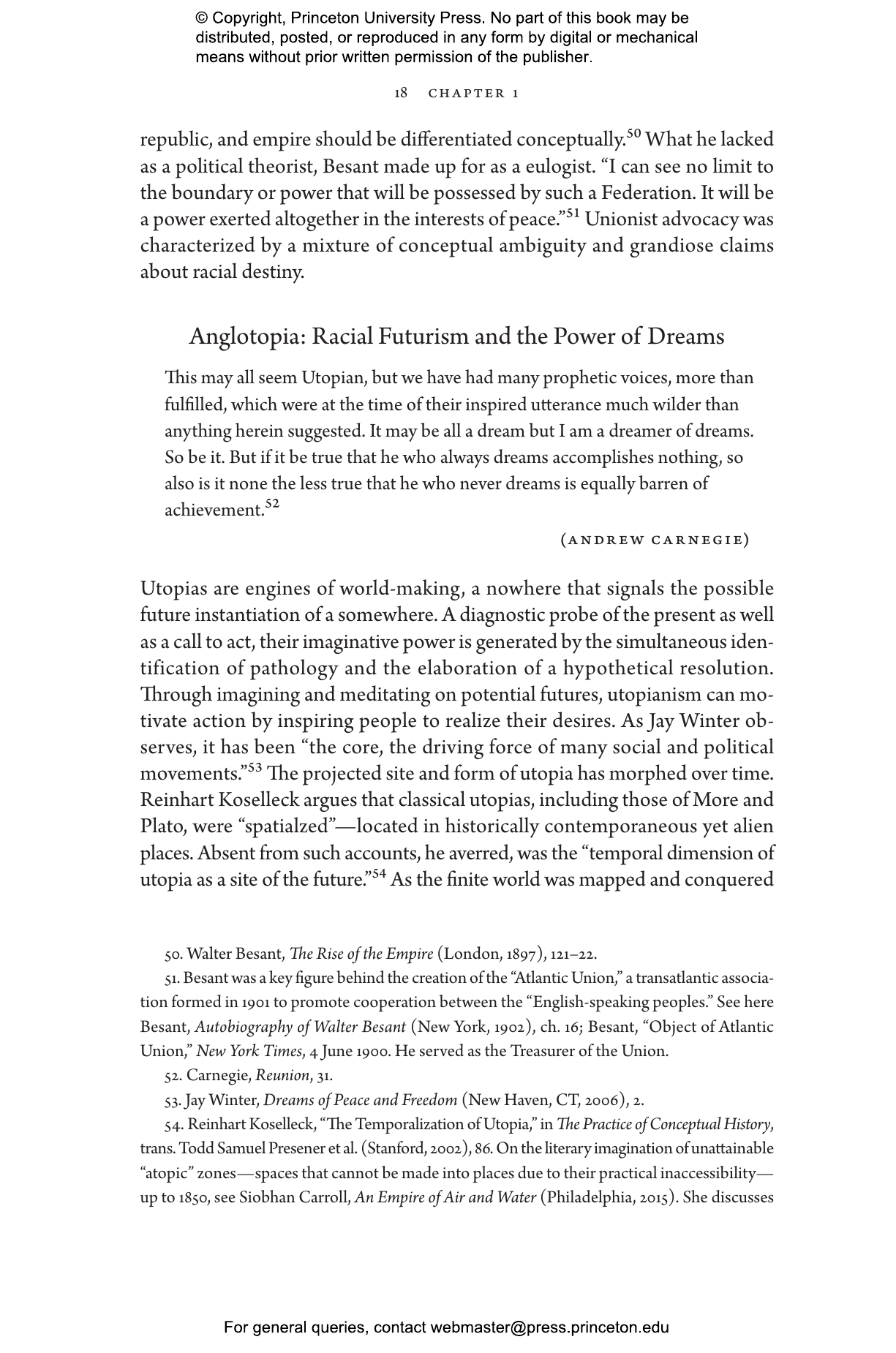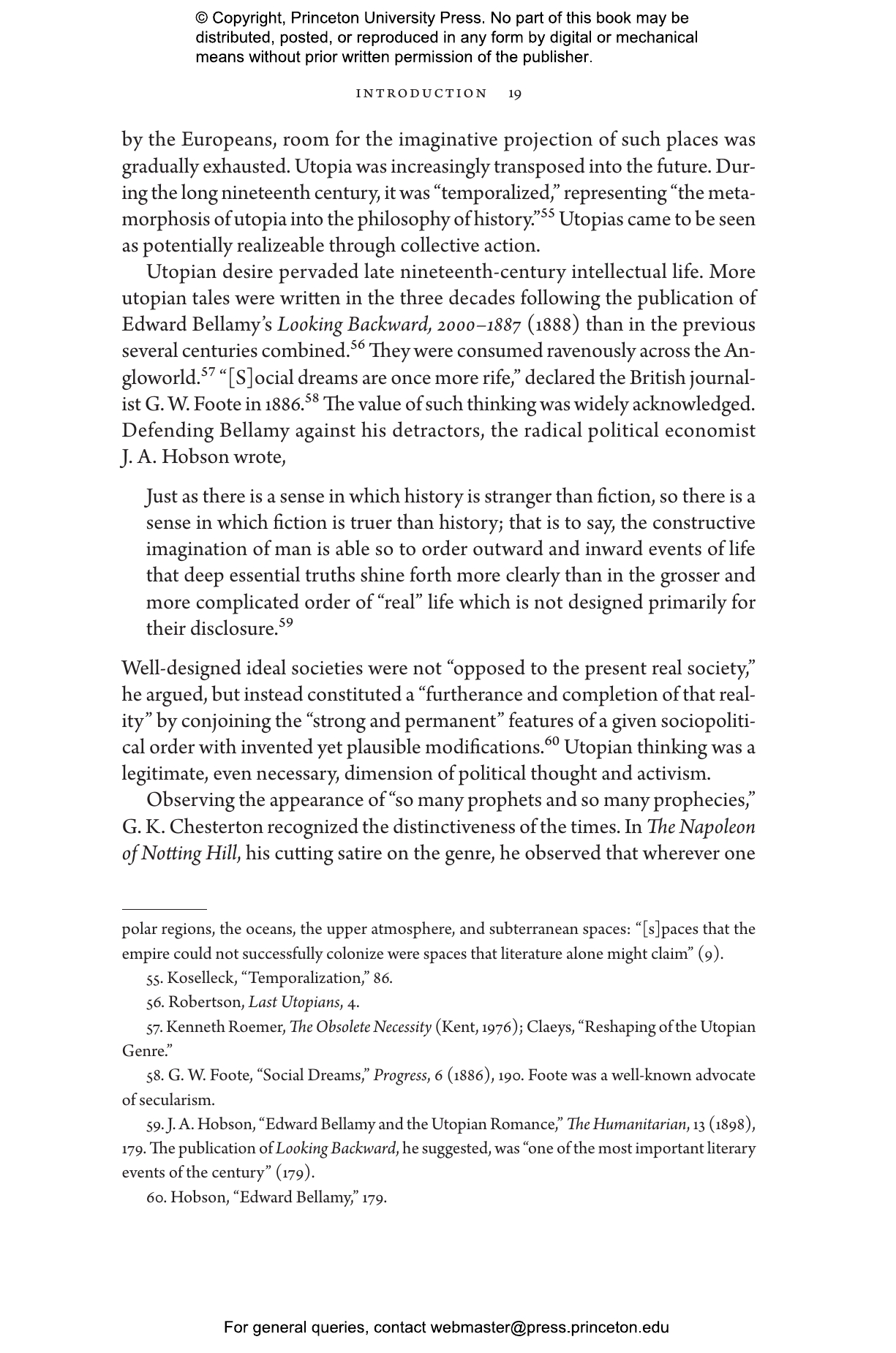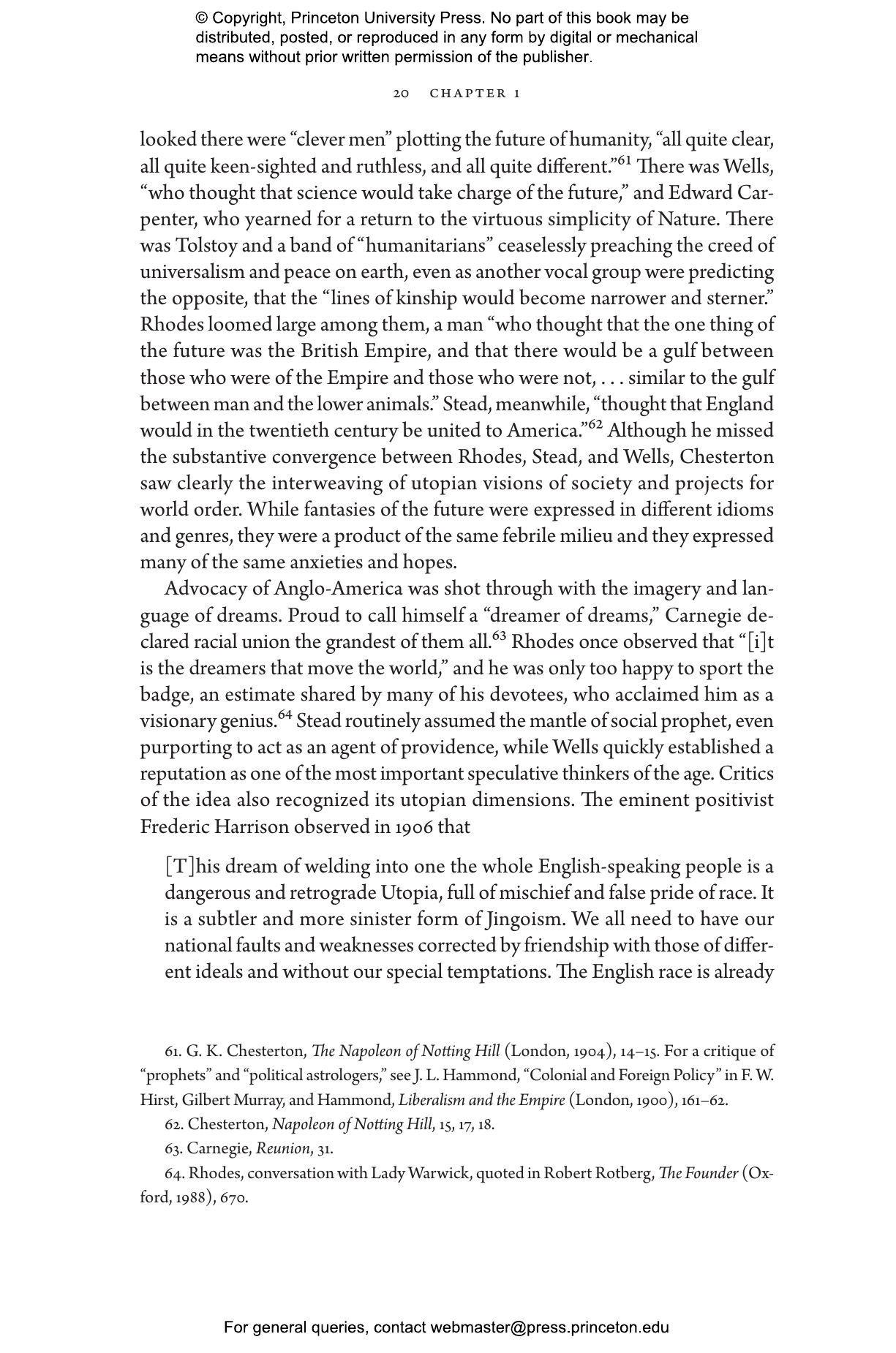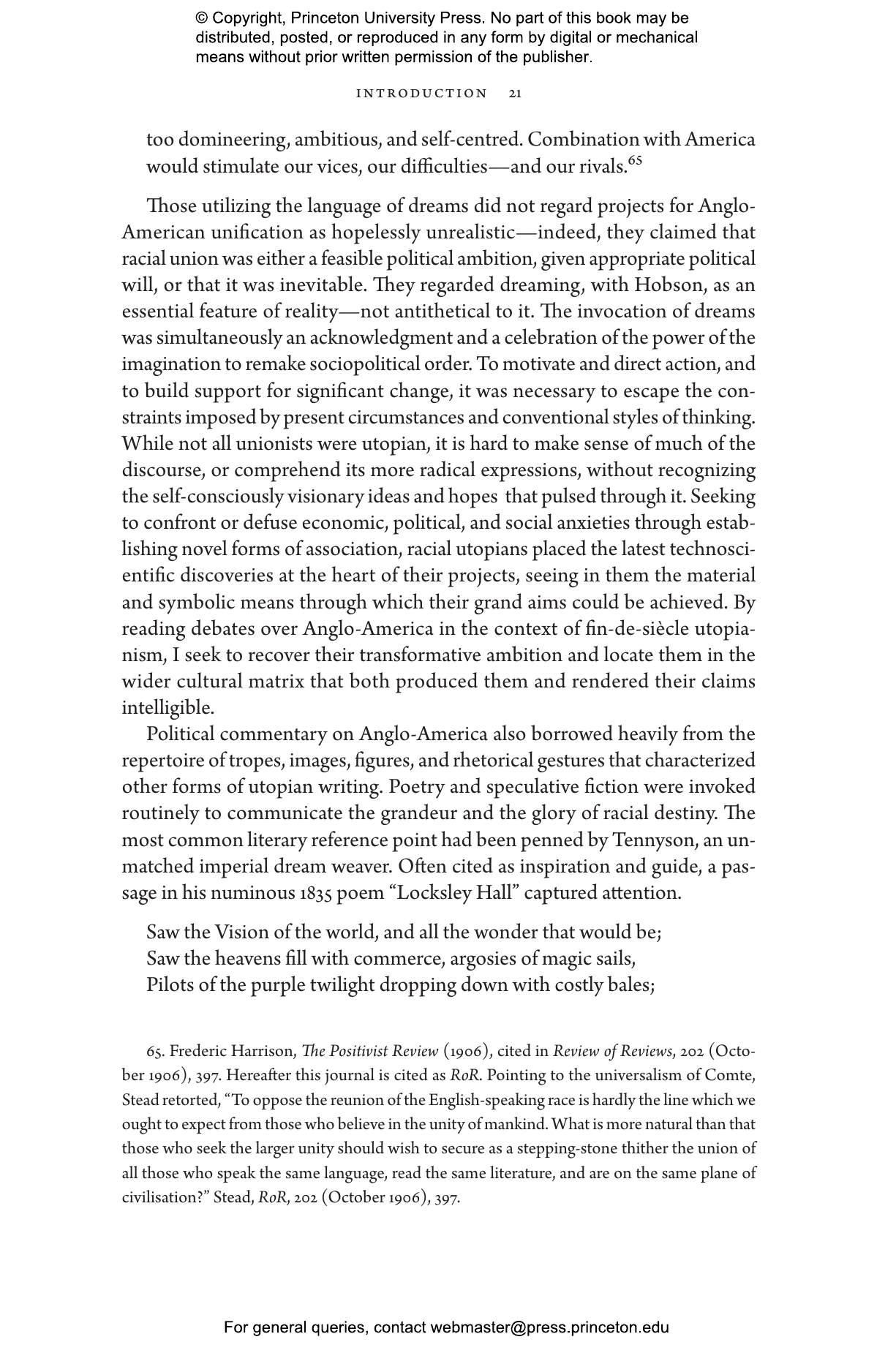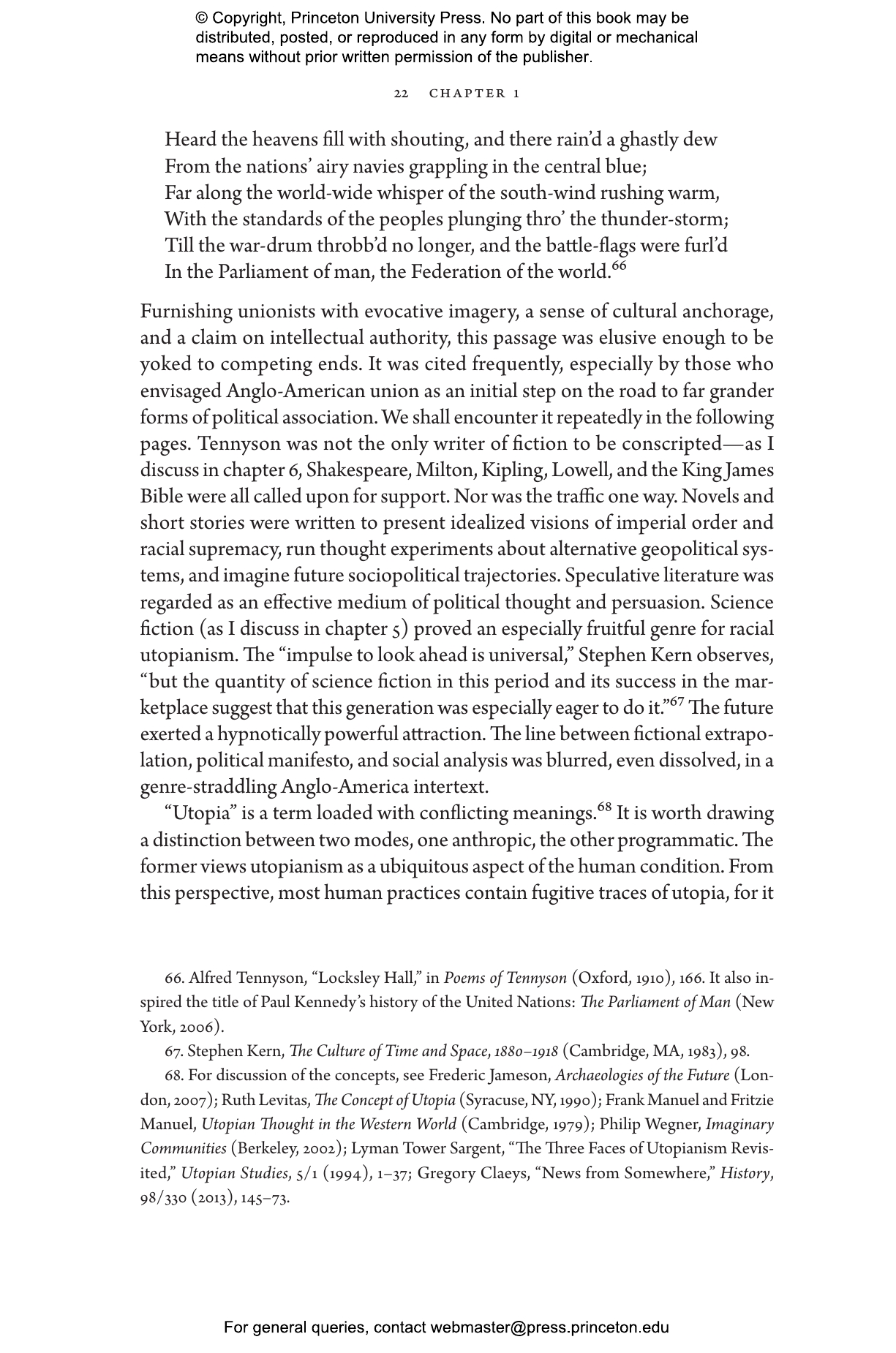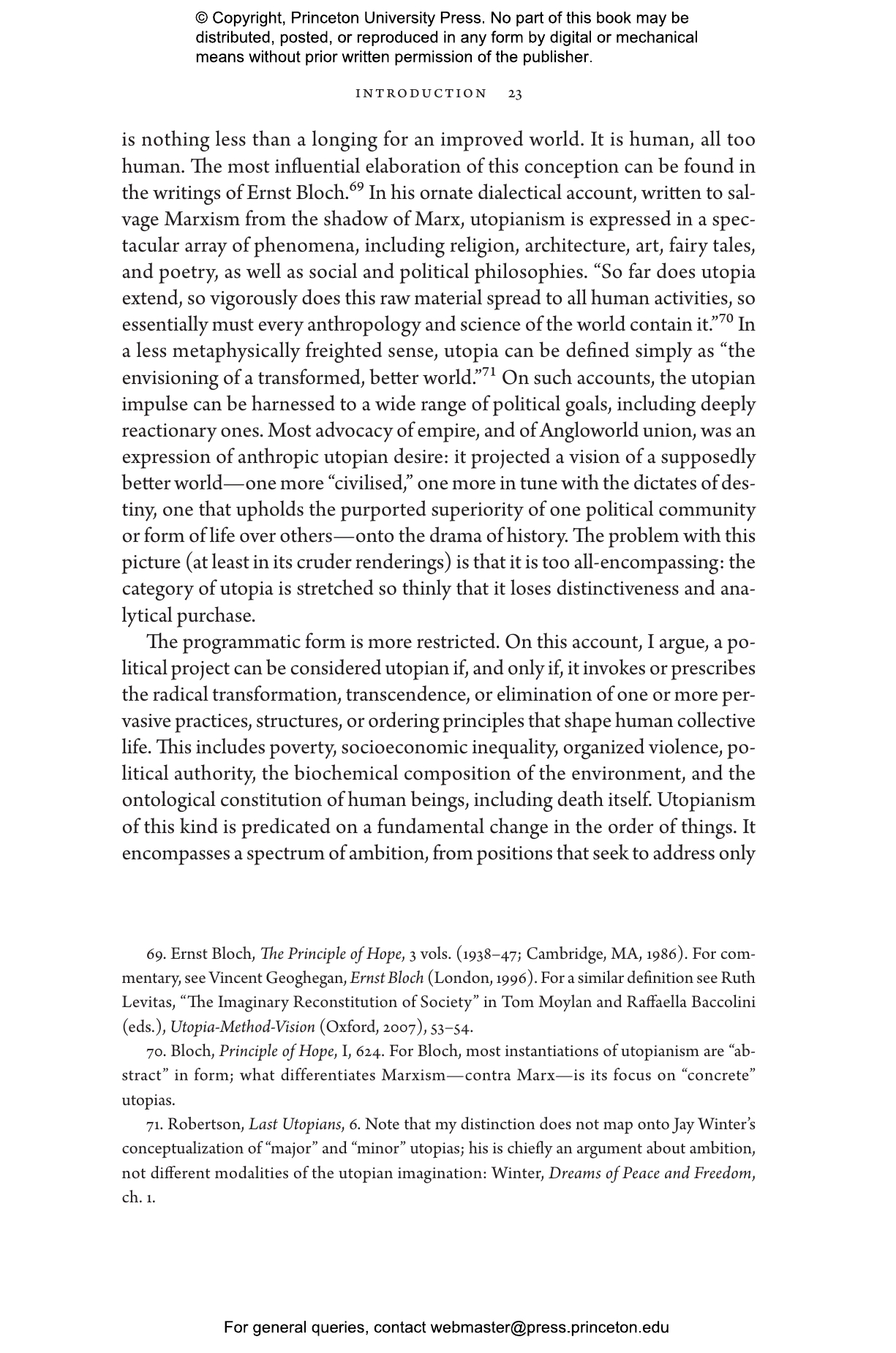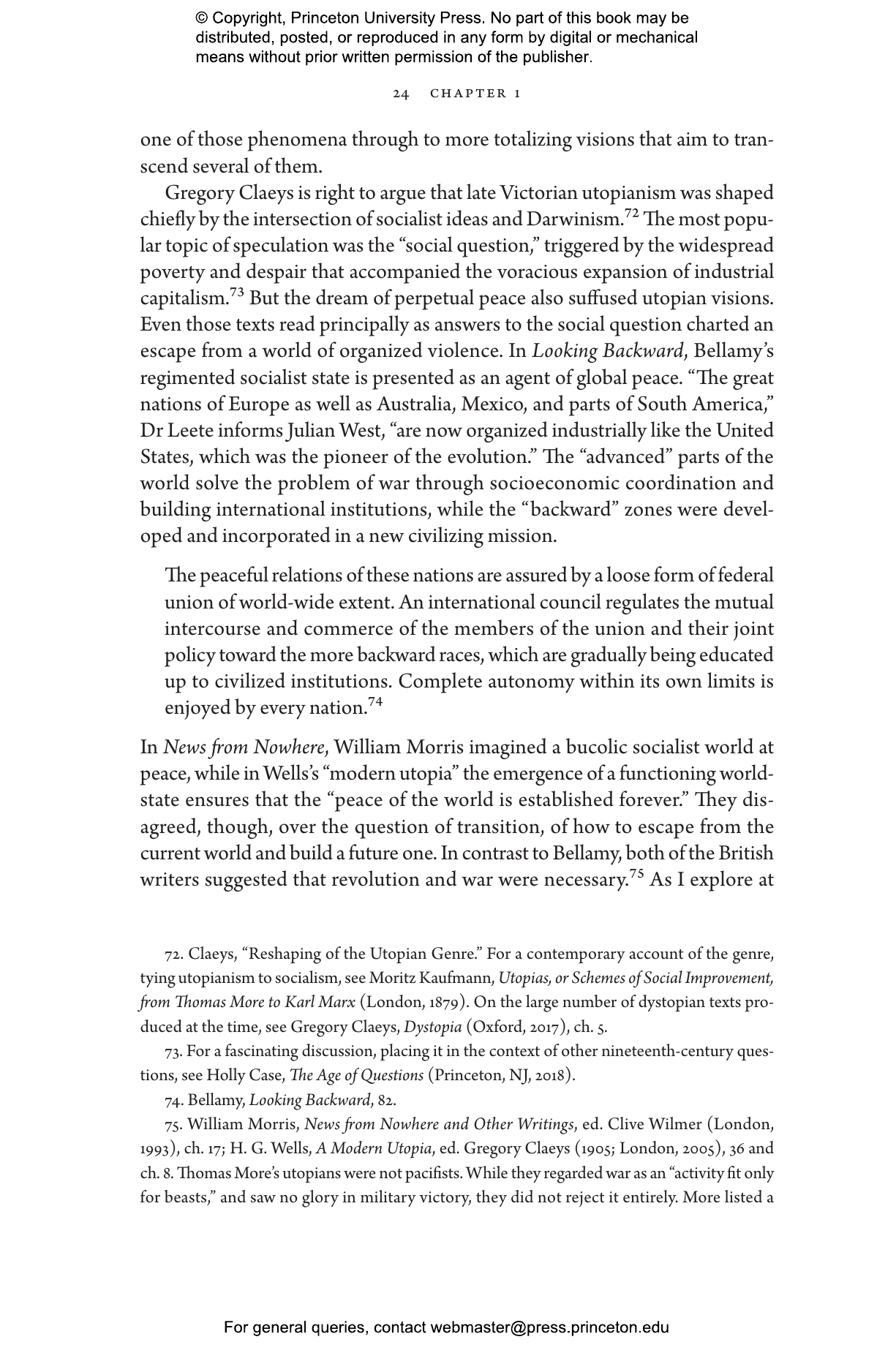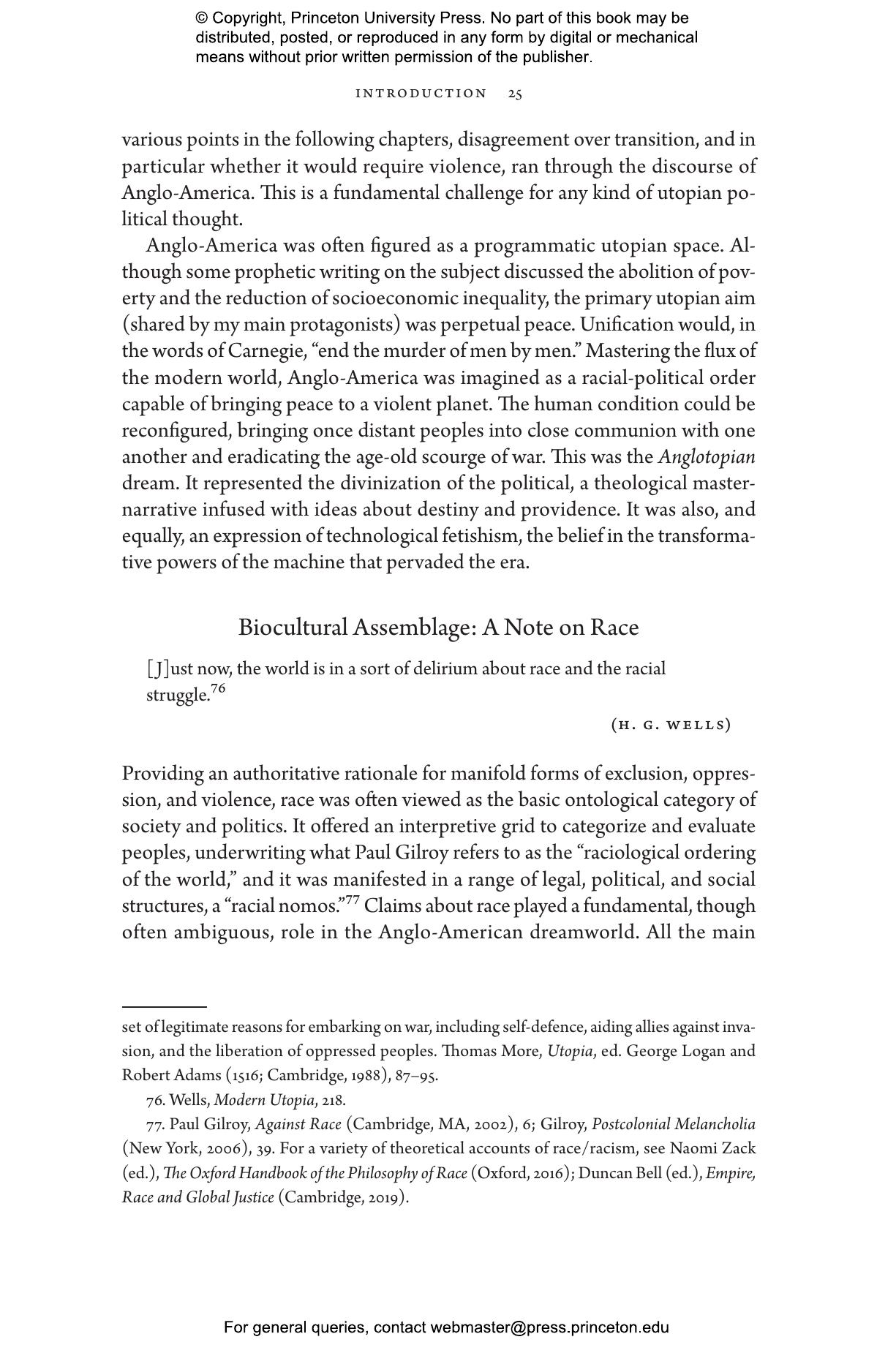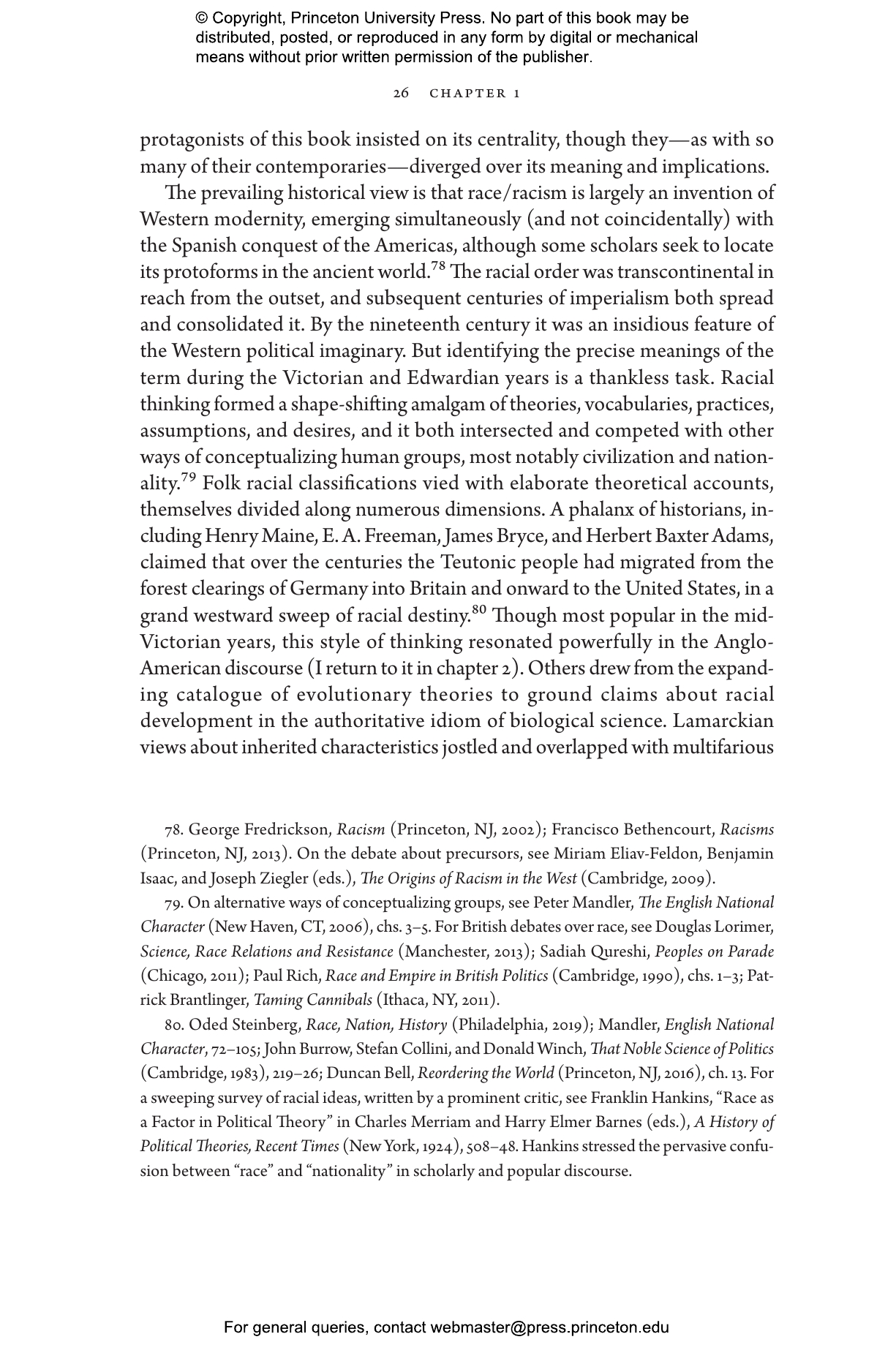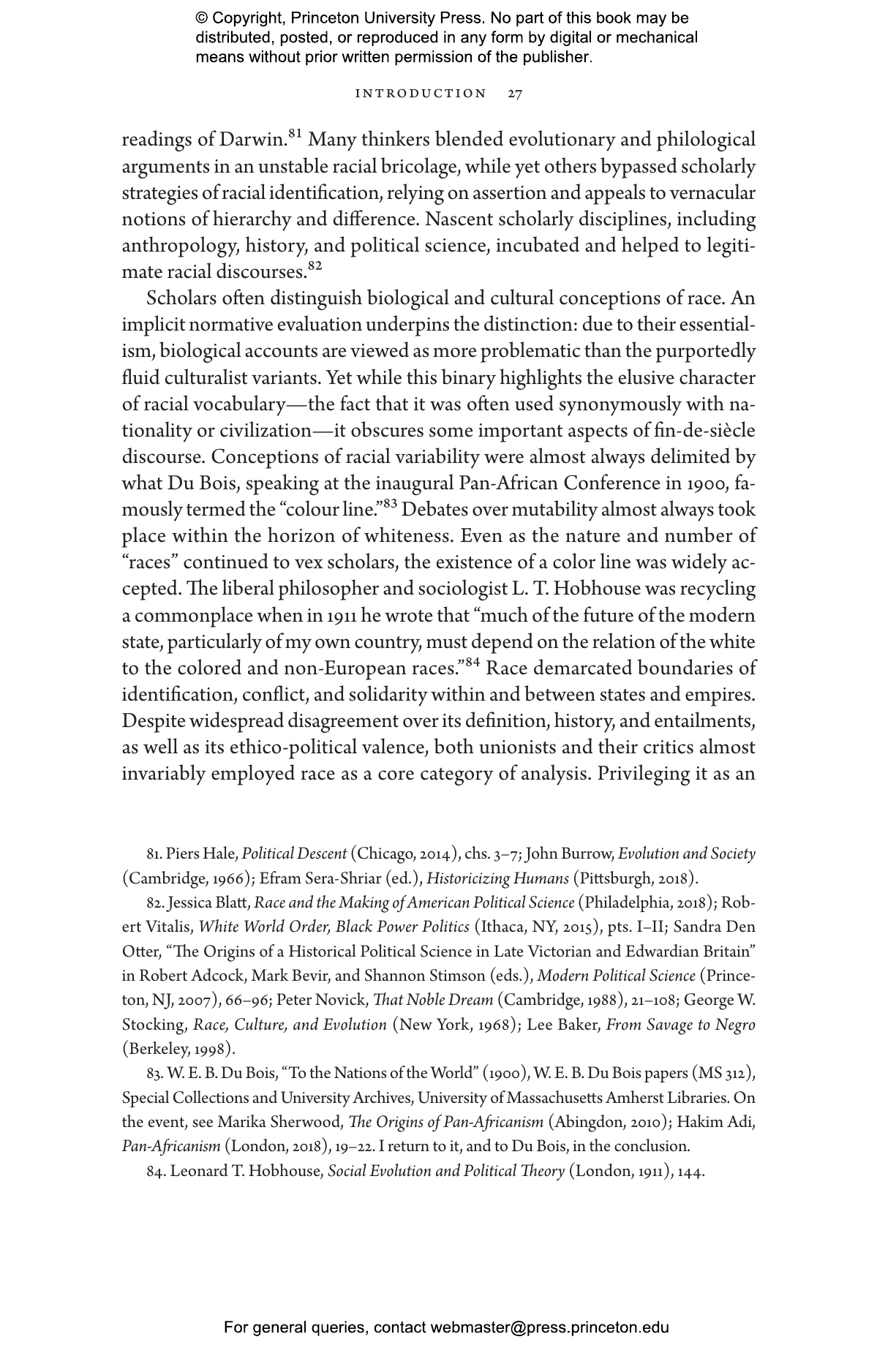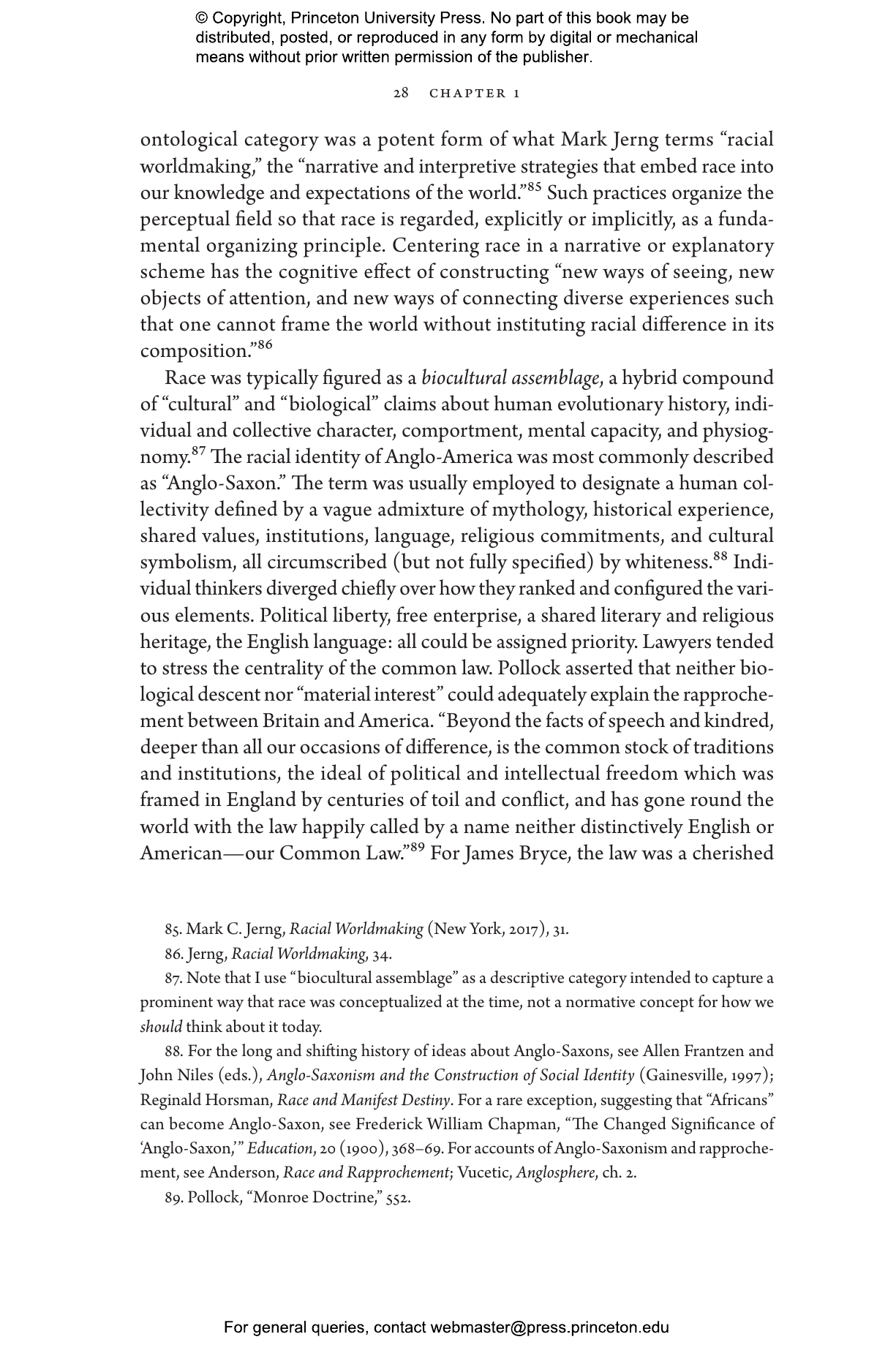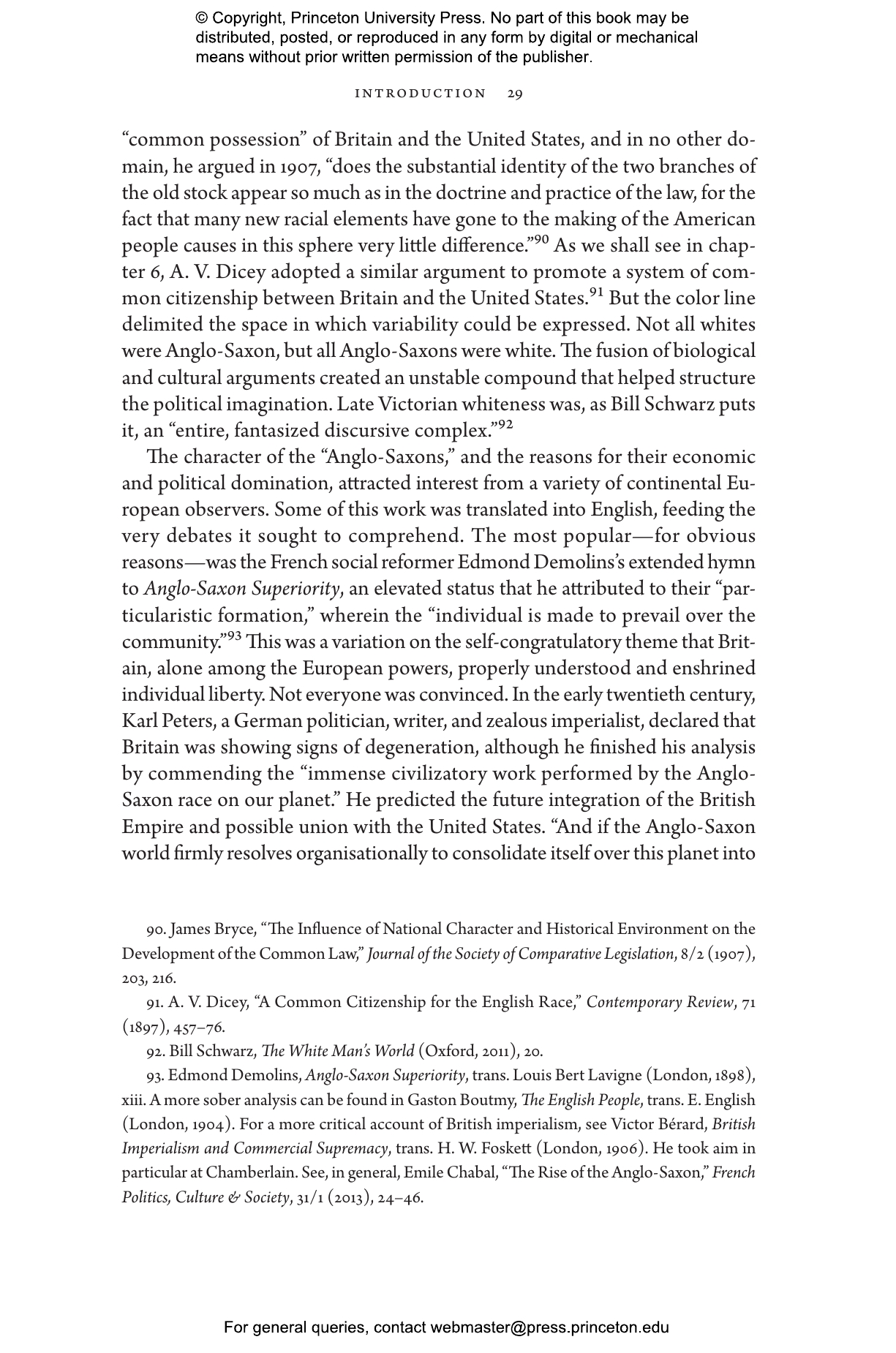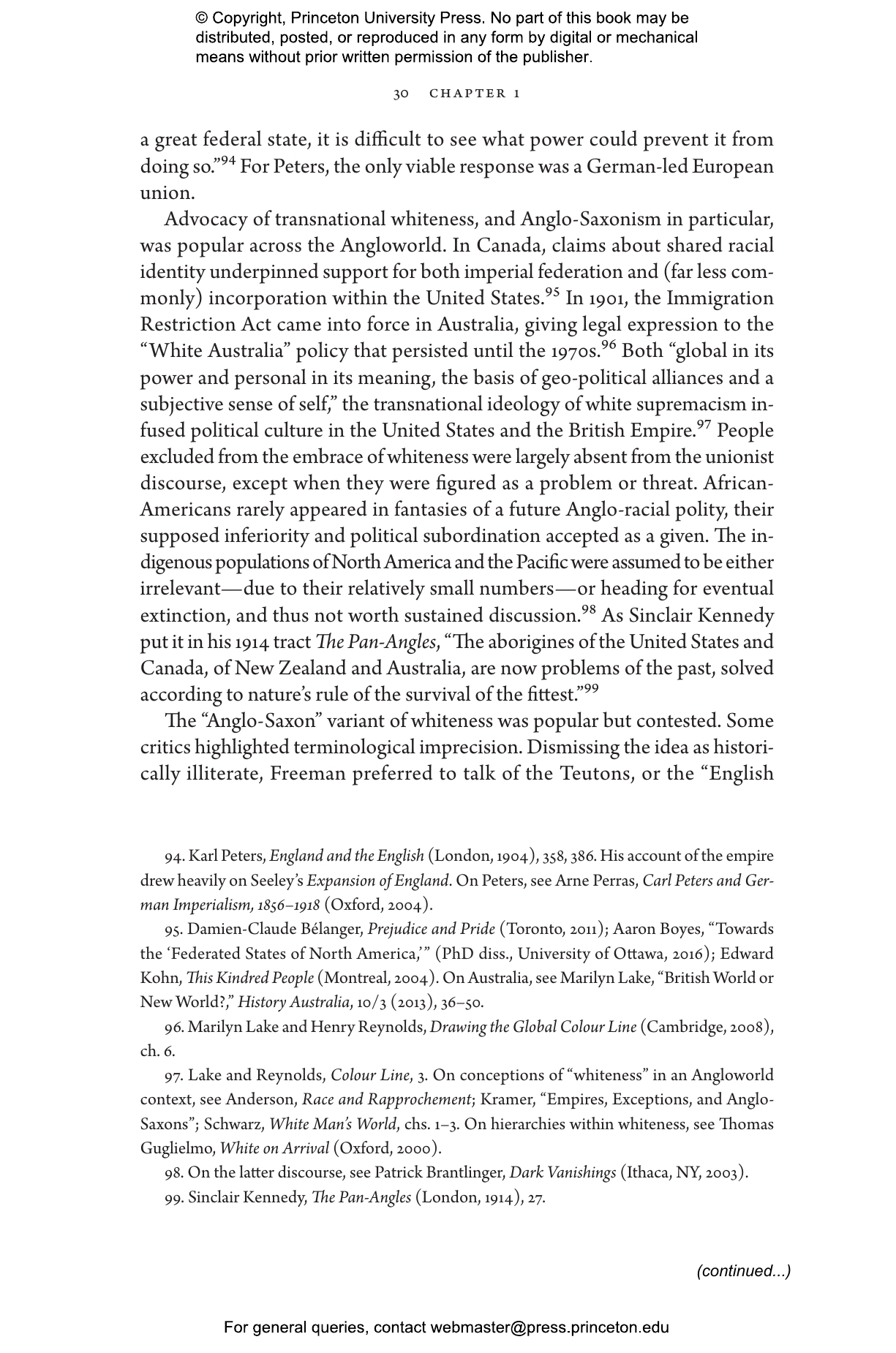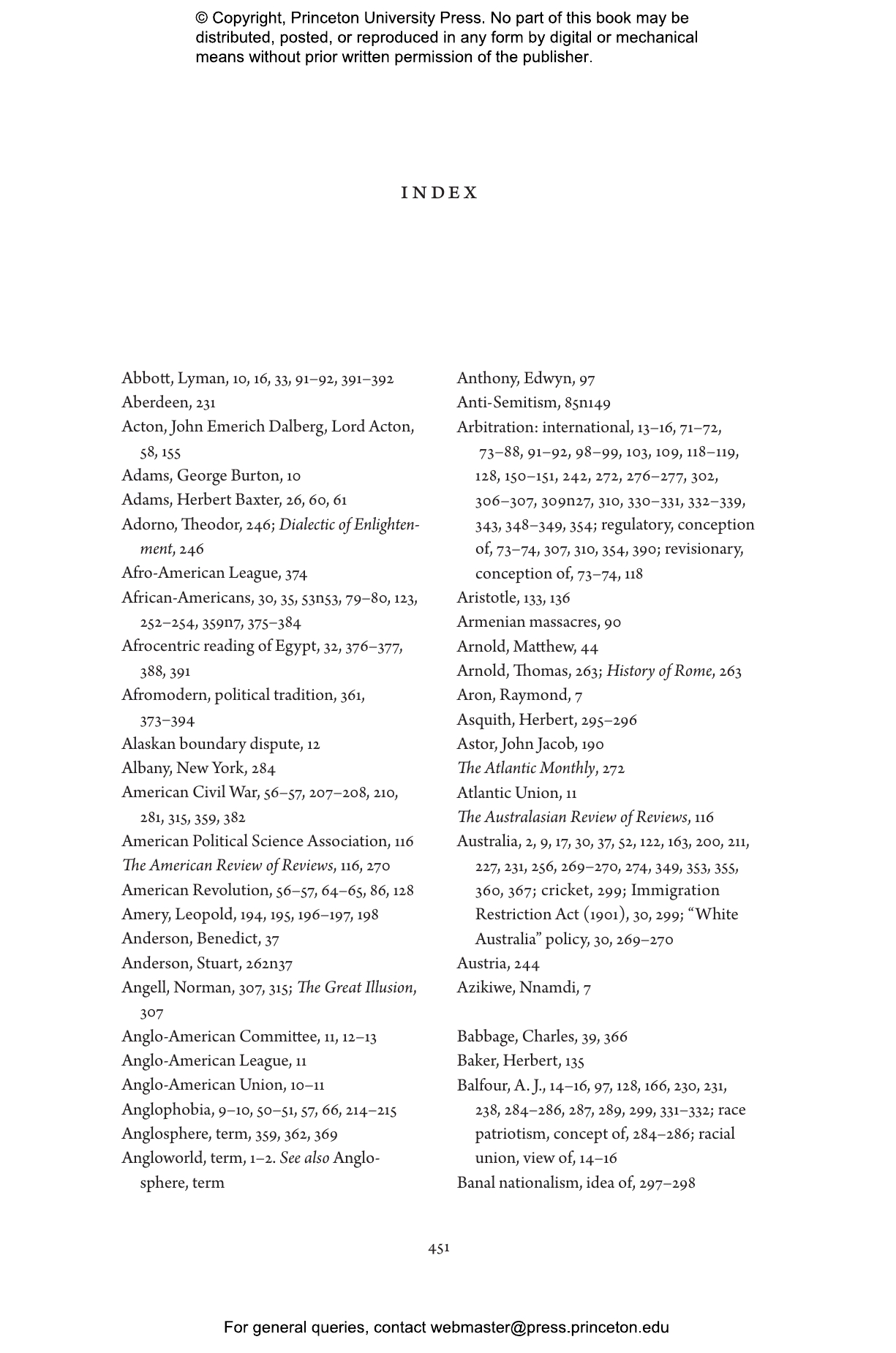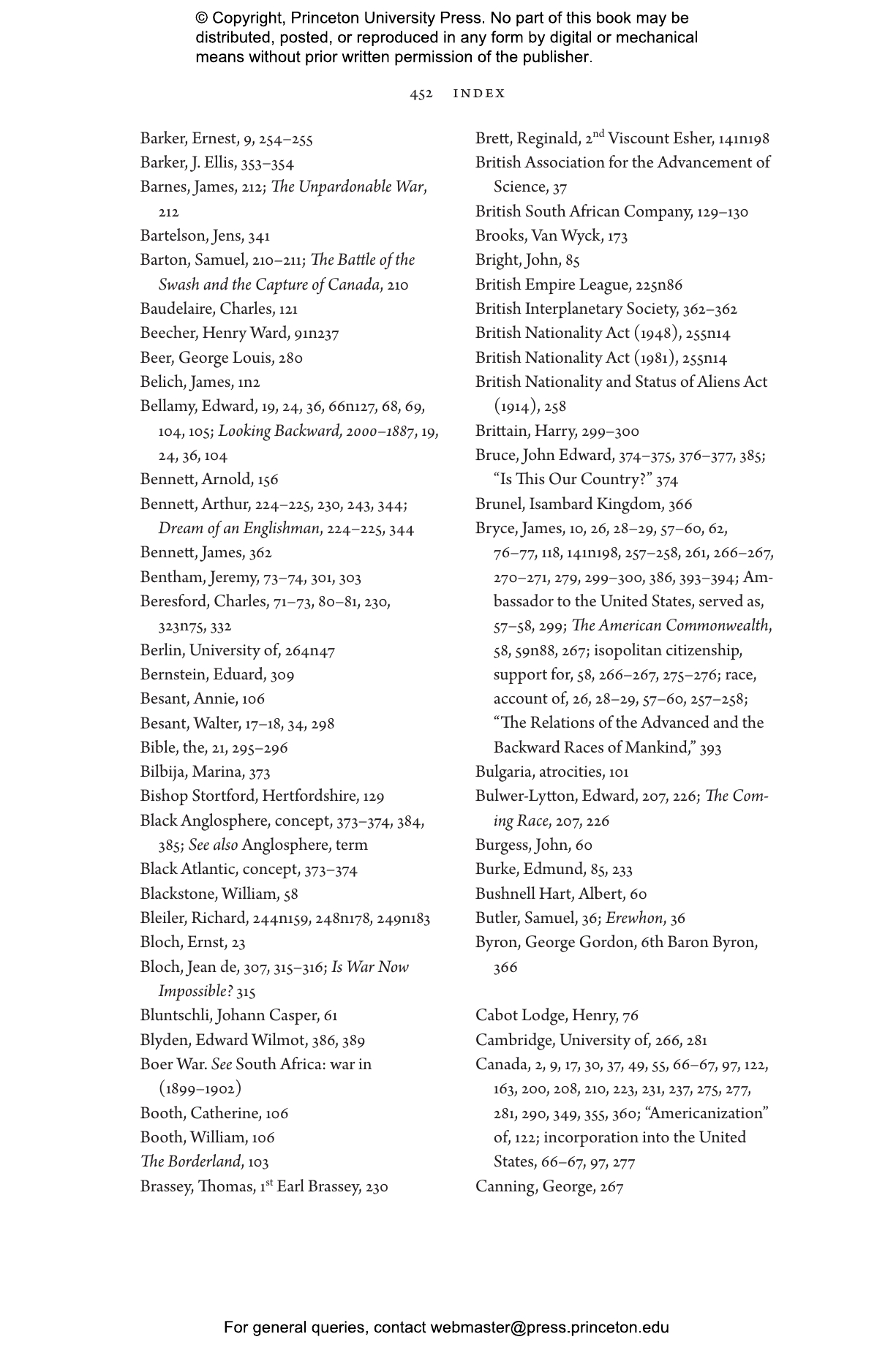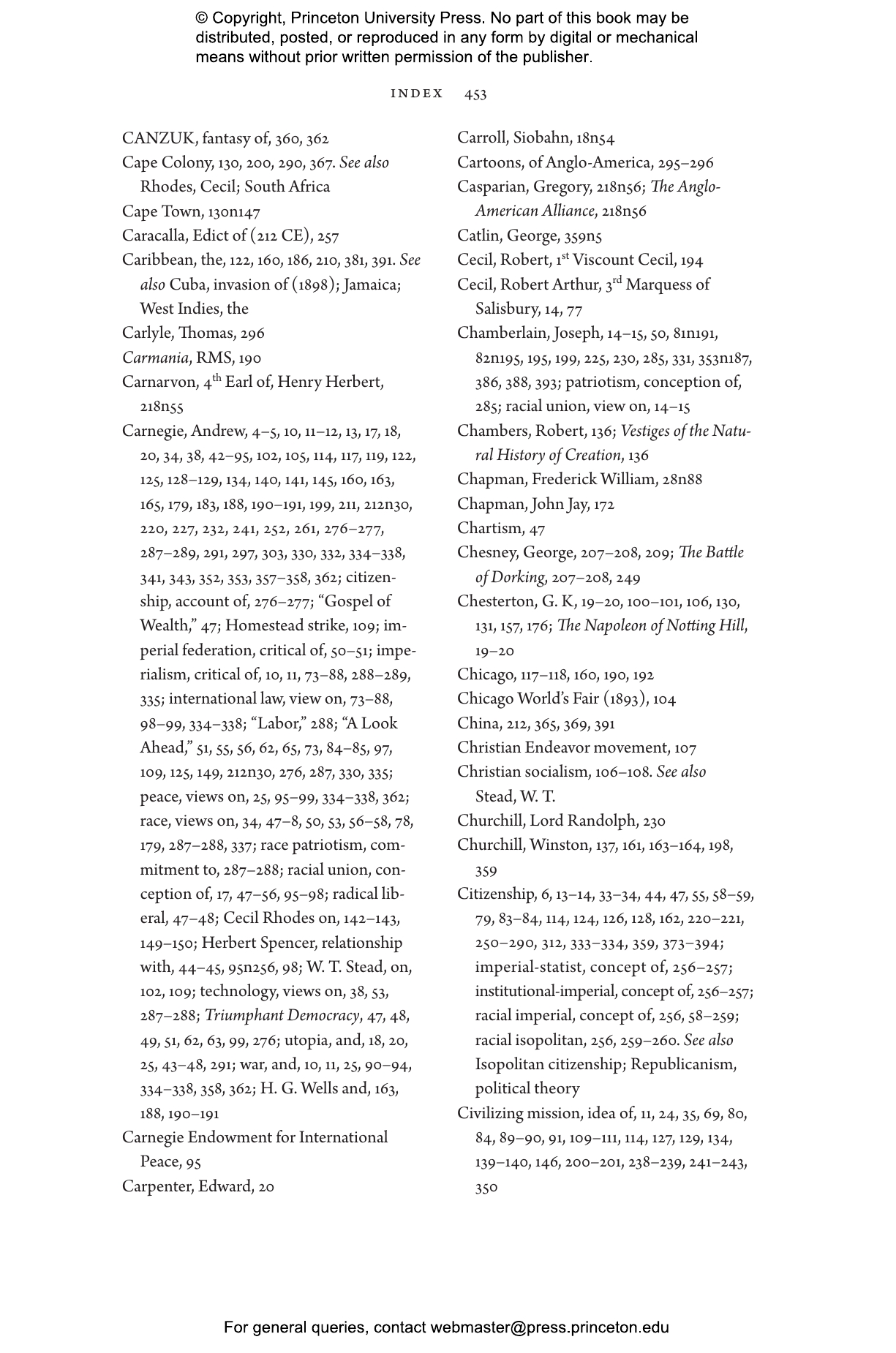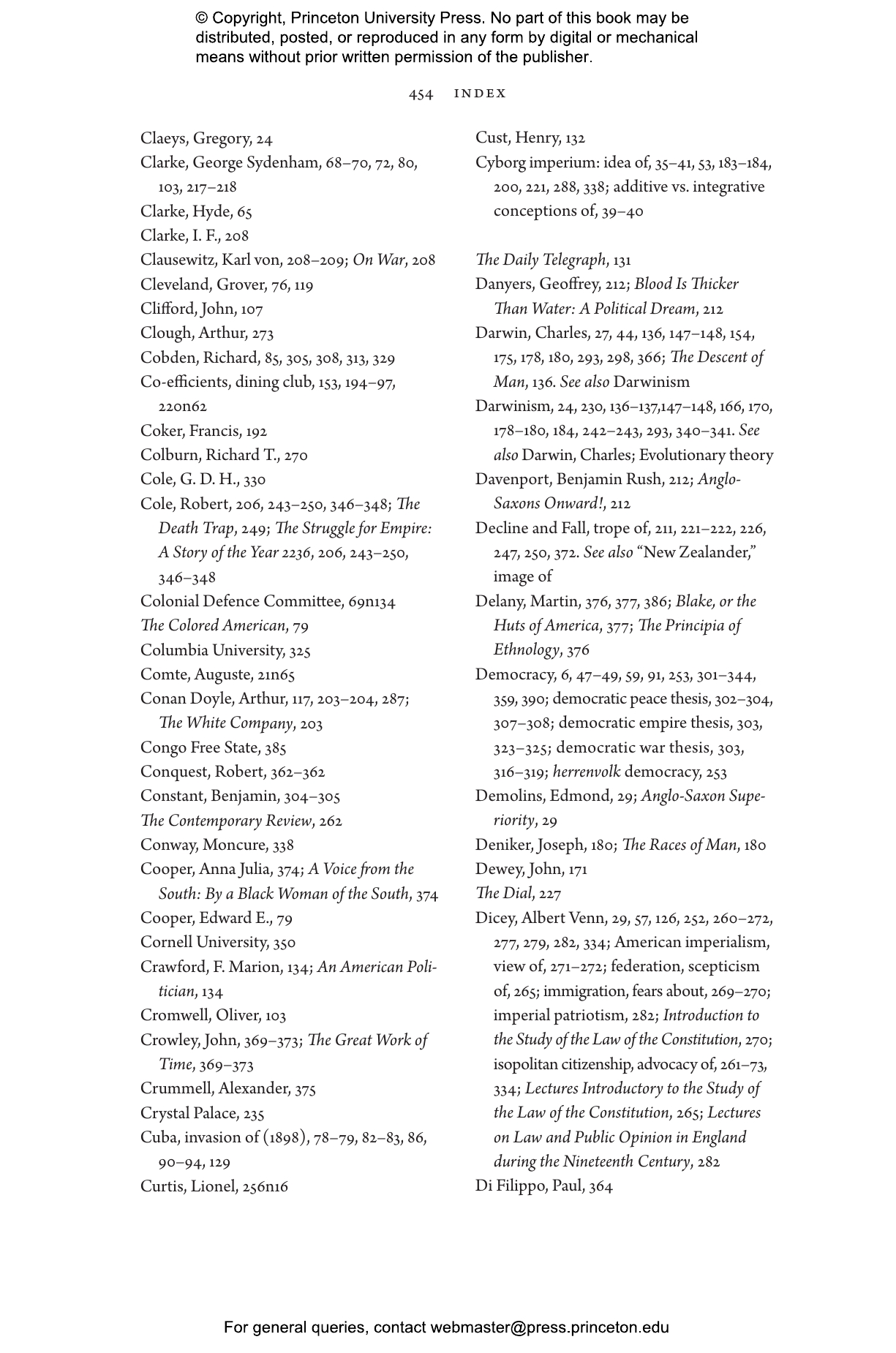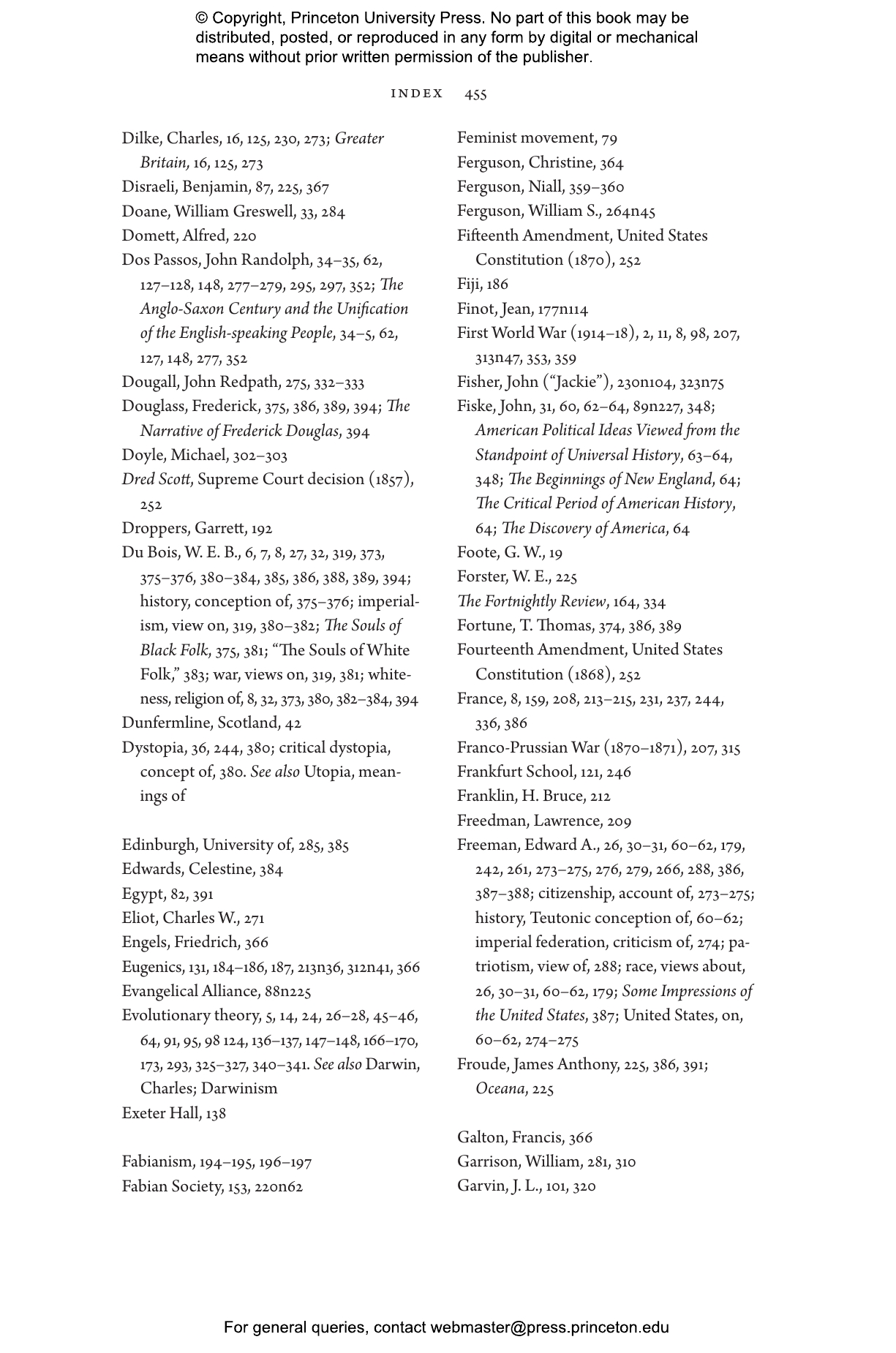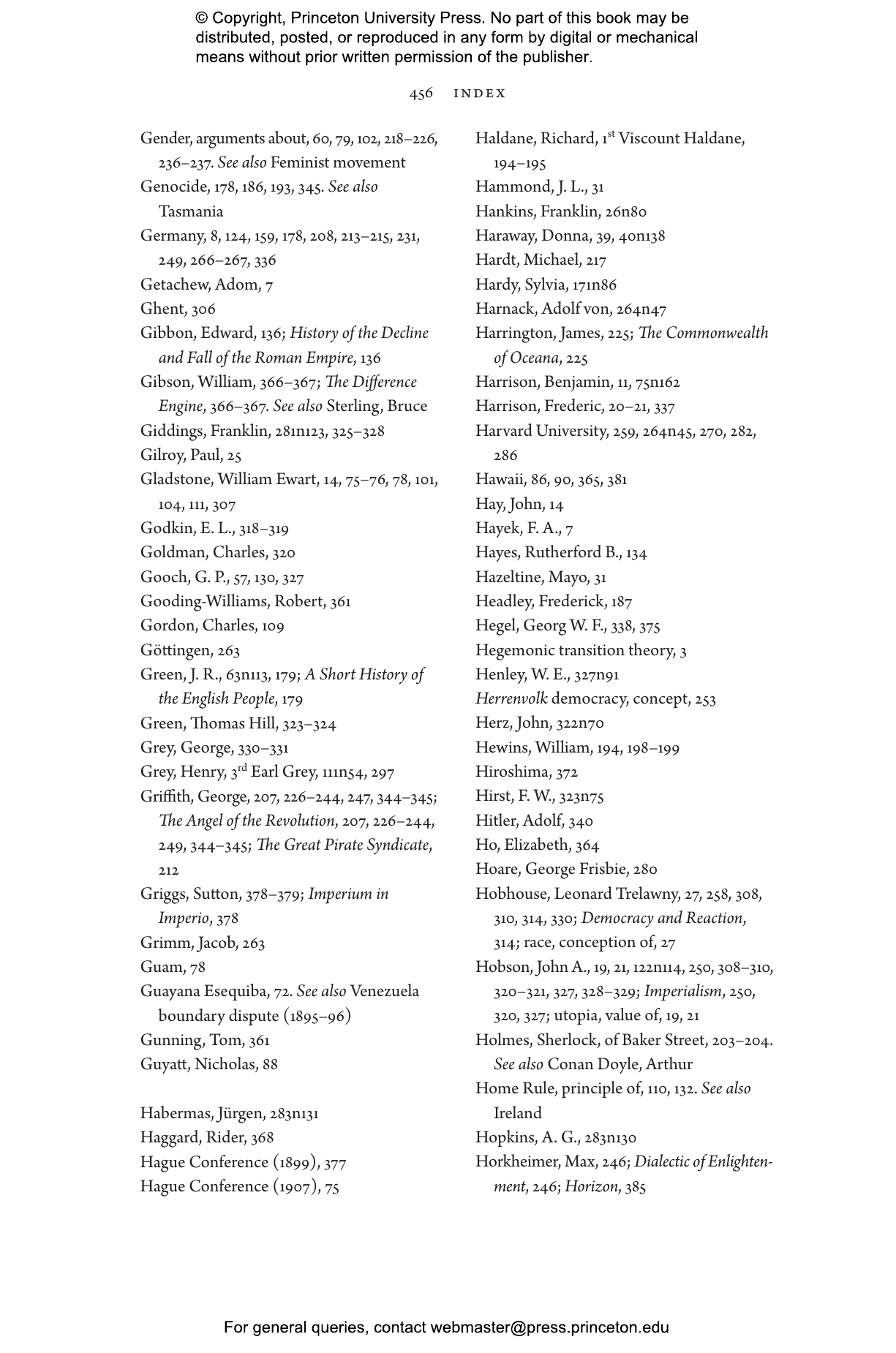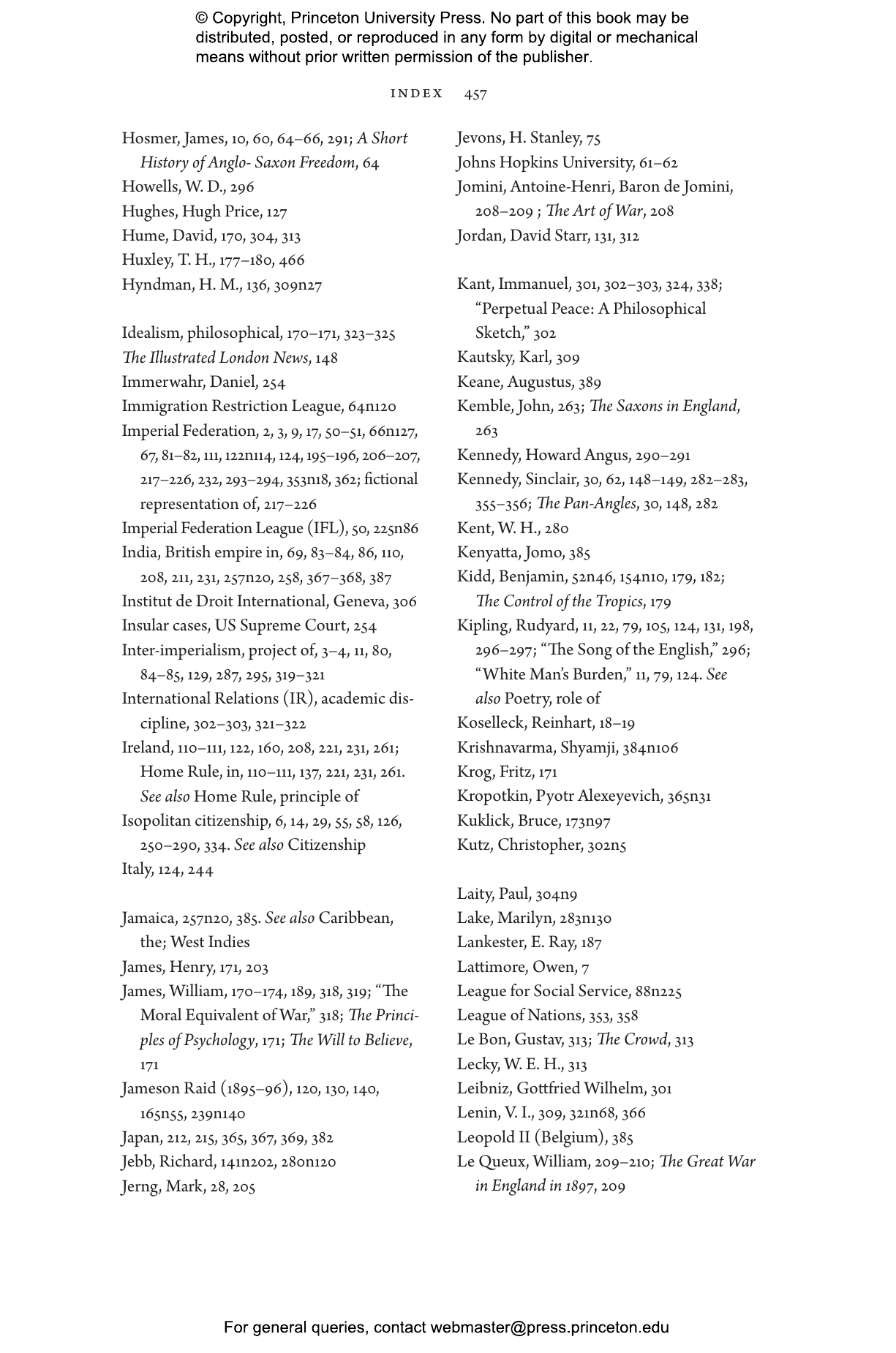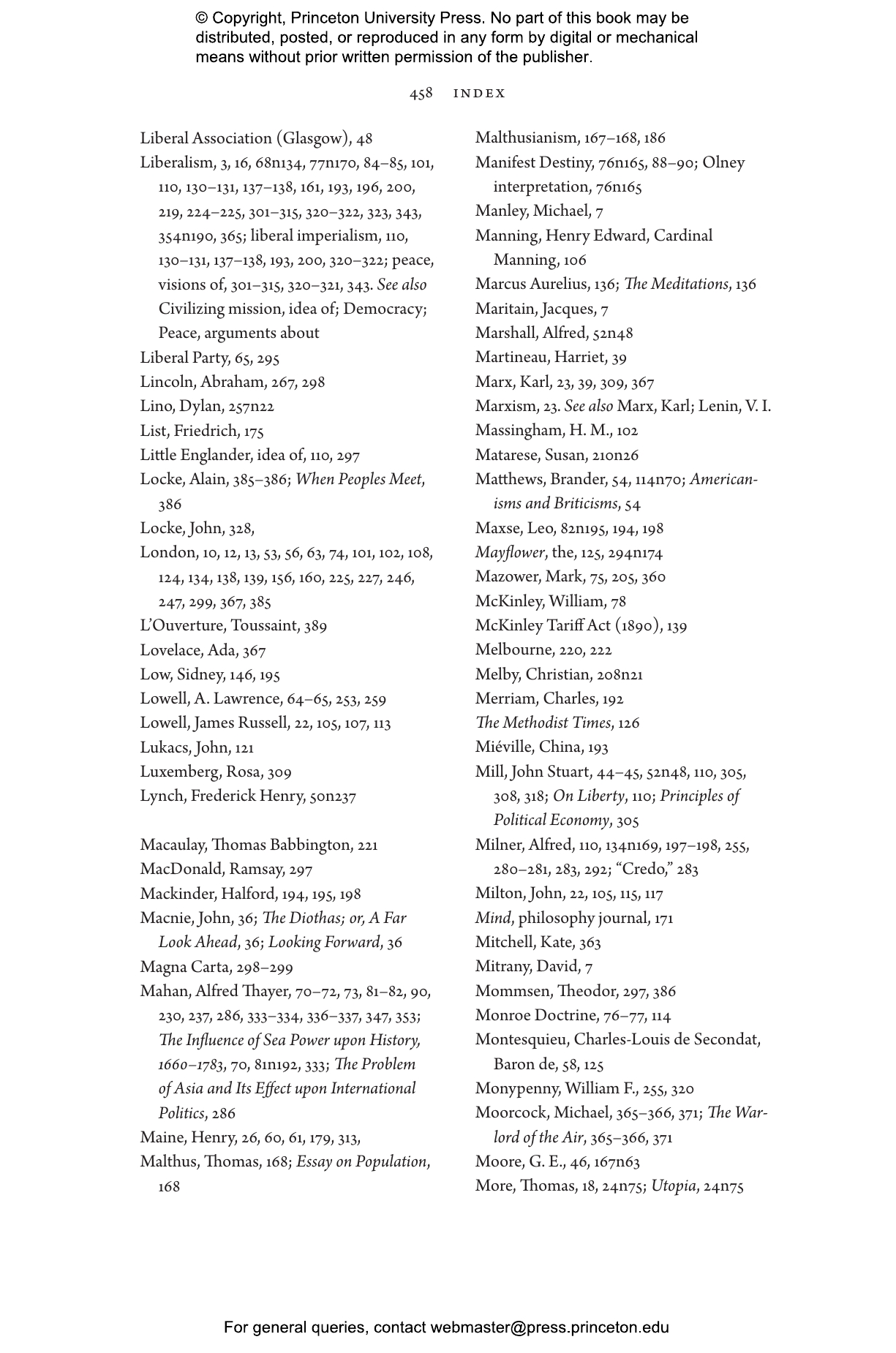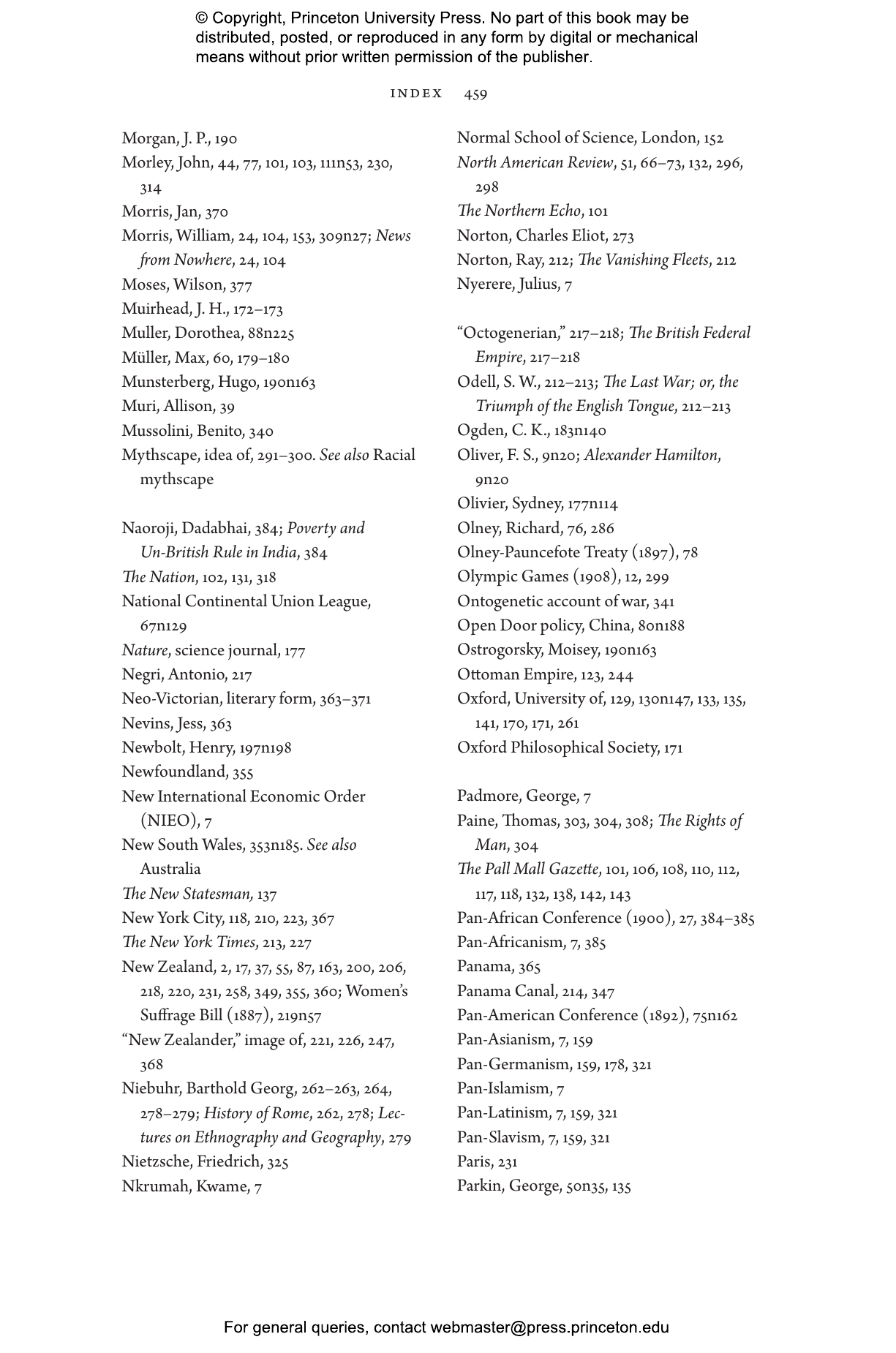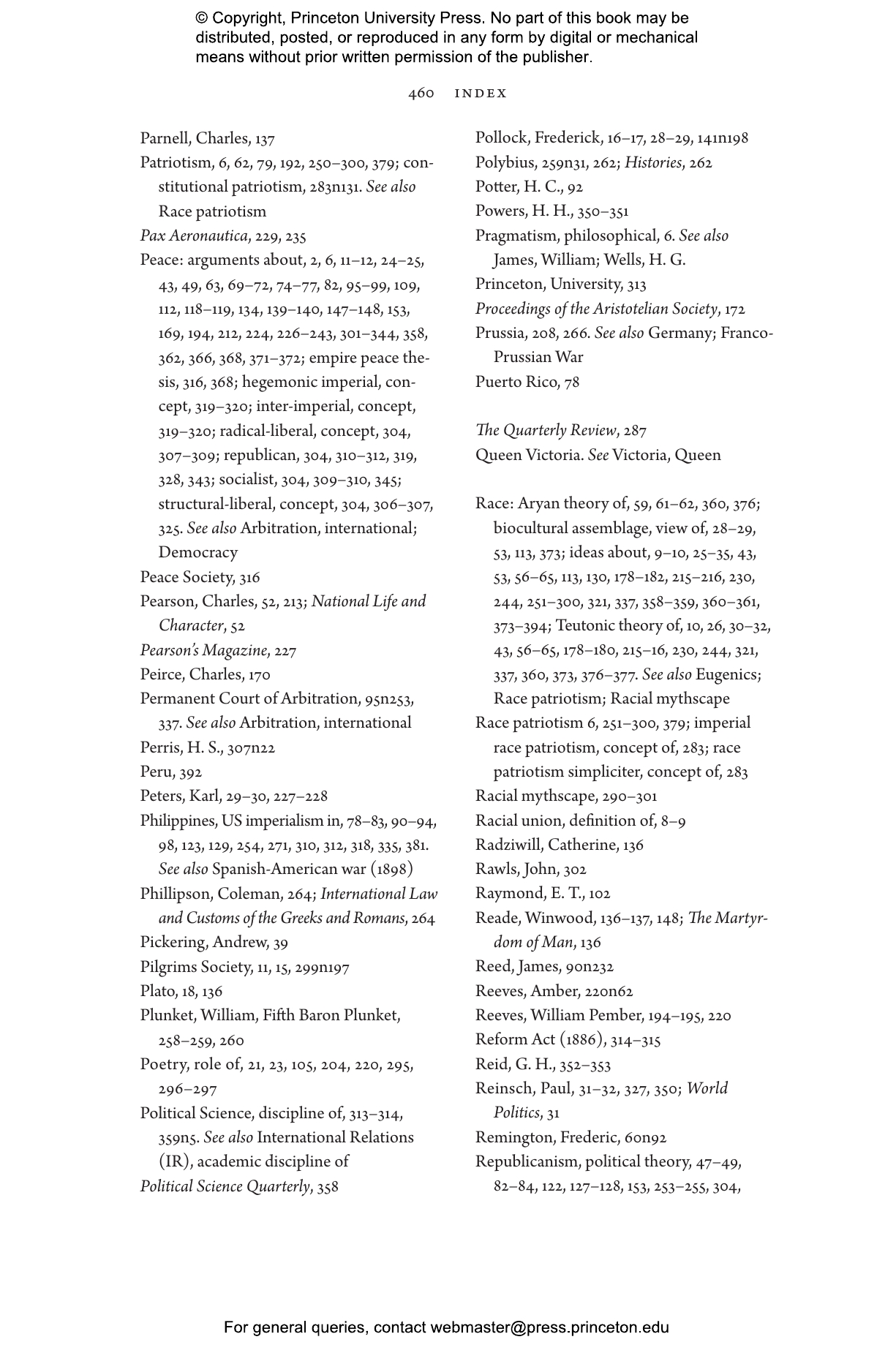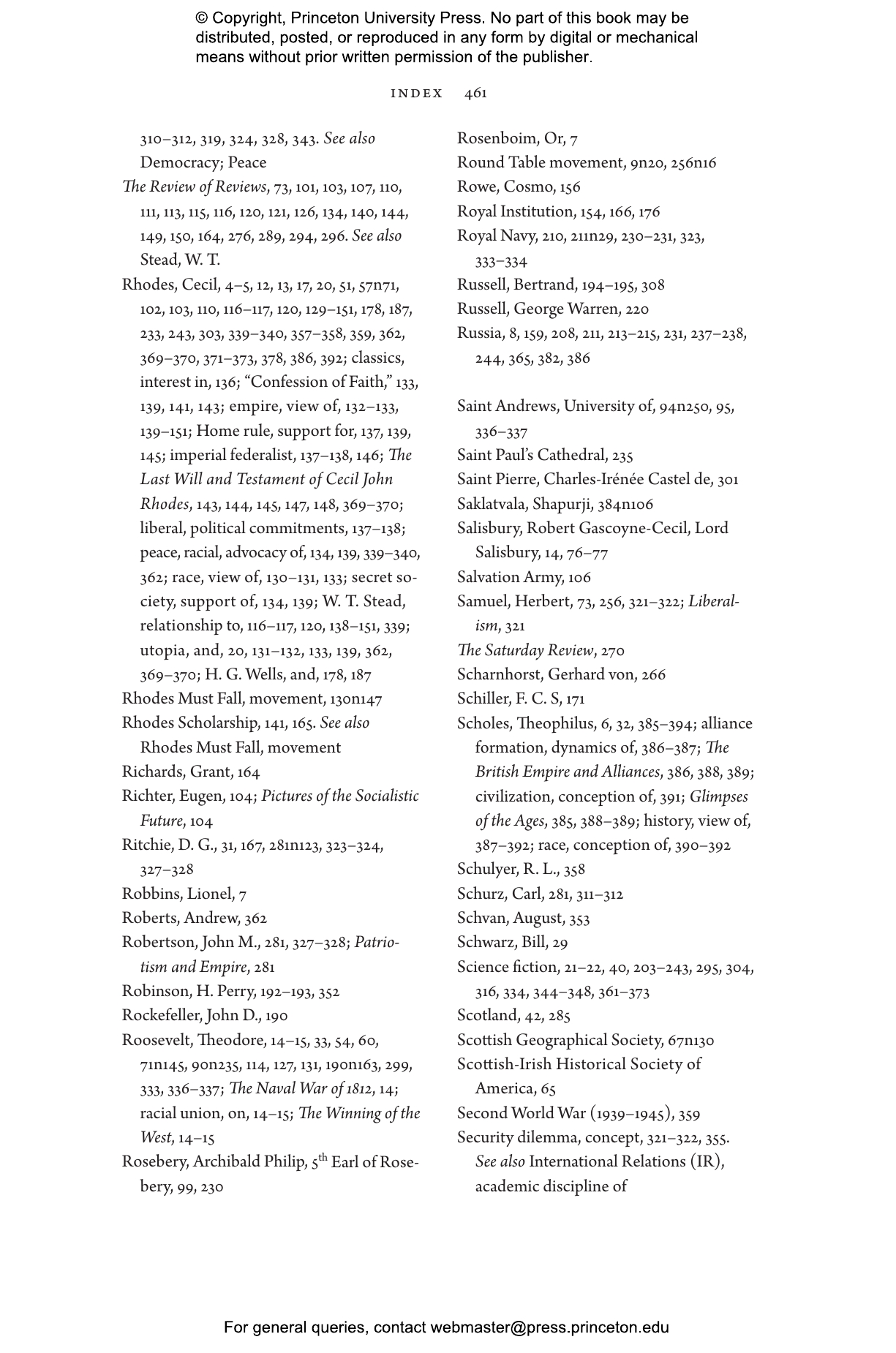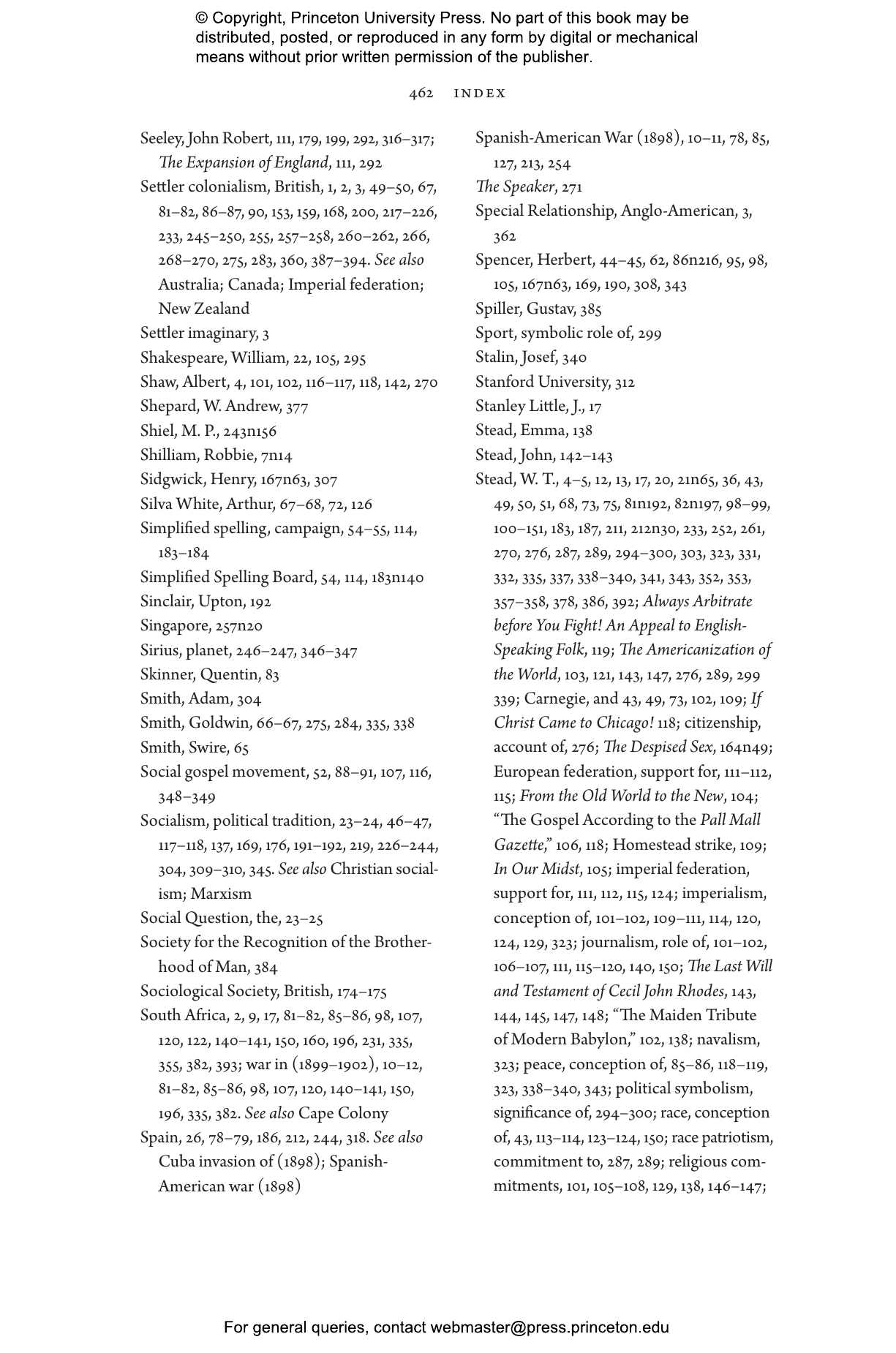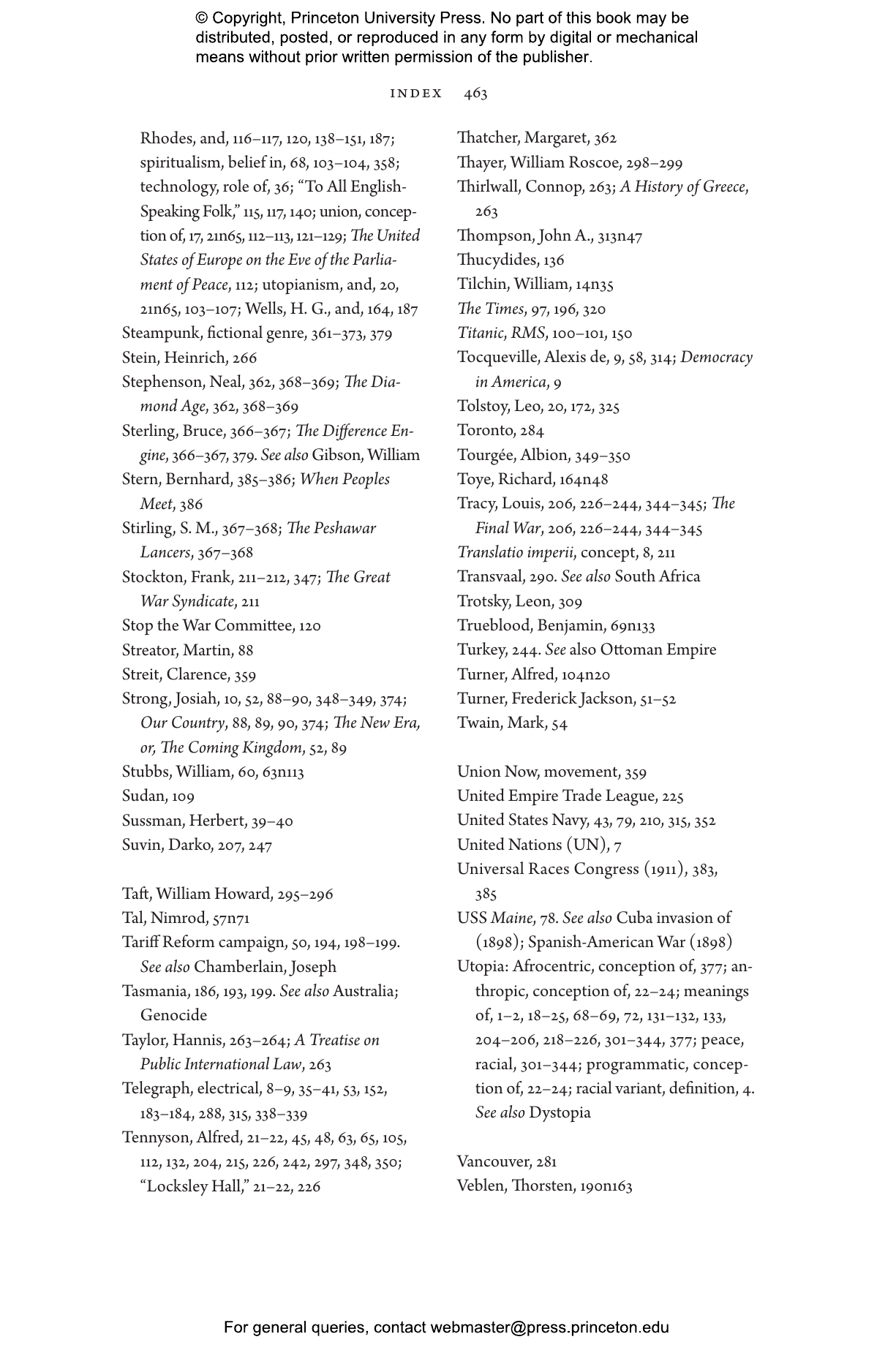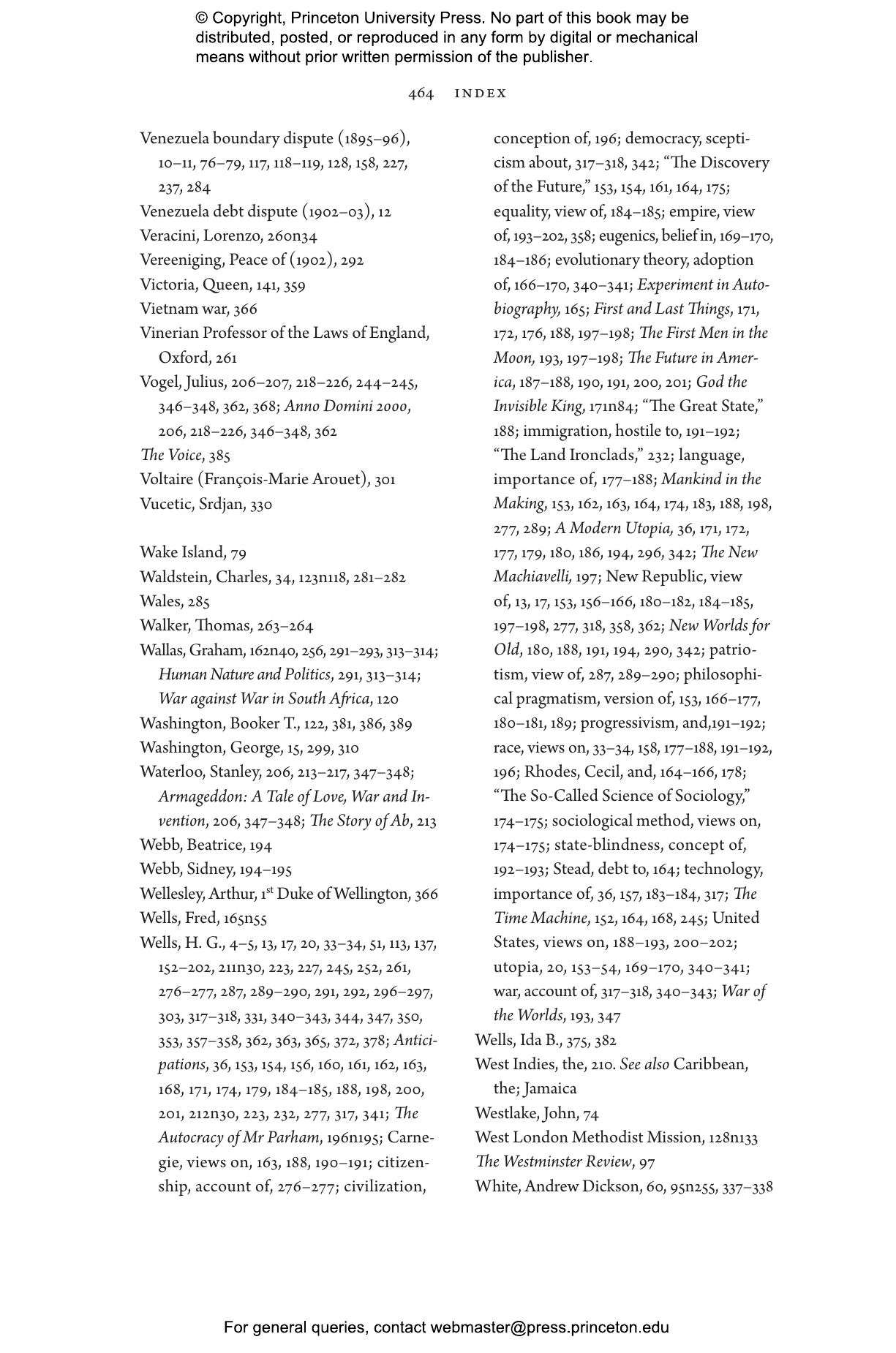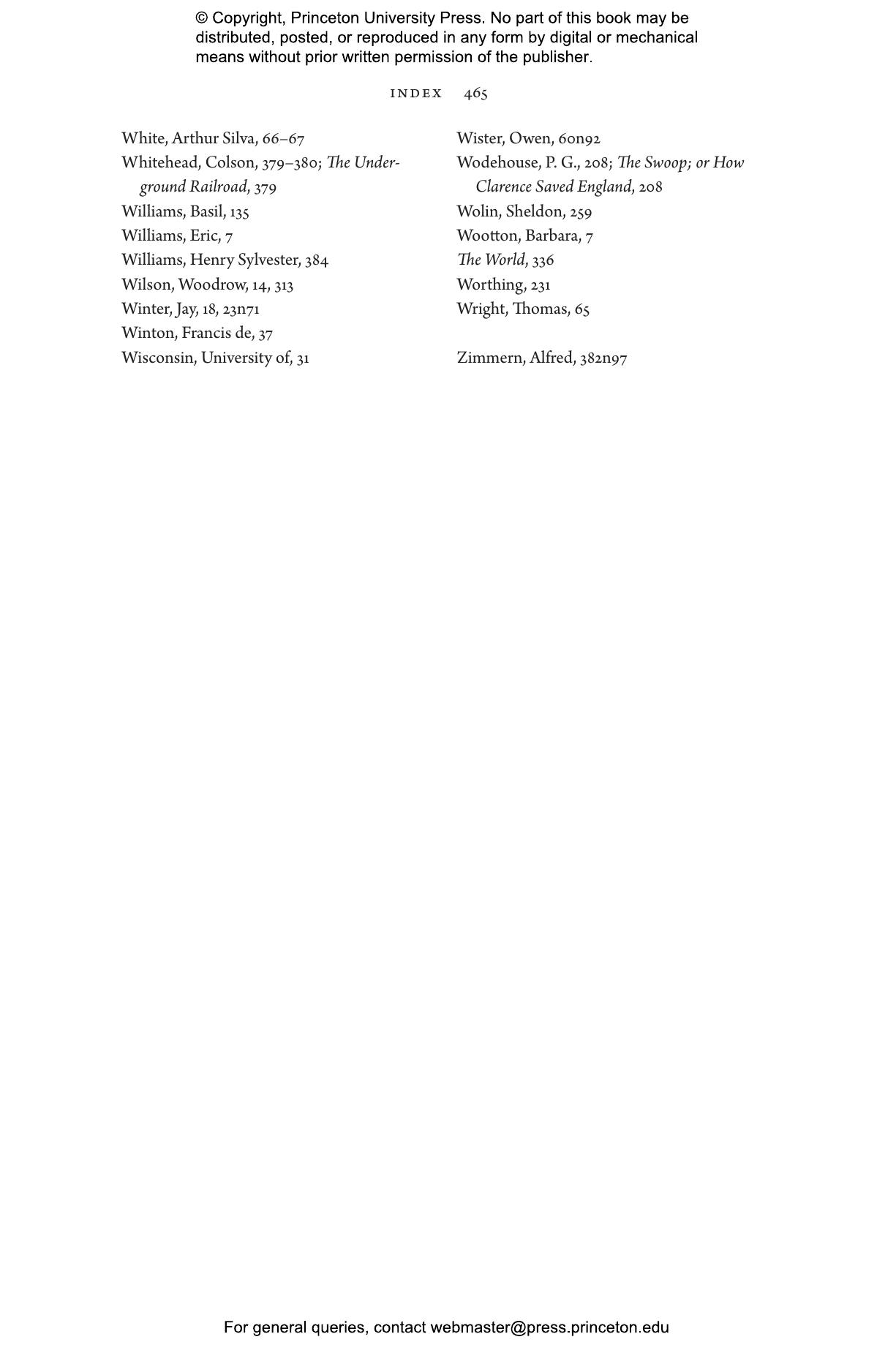Between the late nineteenth century and the First World War an ocean-spanning network of prominent individuals advocated the unification of Britain and the United States. They dreamt of the final consolidation of the Angloworld. Scholars, journalists, politicians, businessmen, and science fiction writers invested the “Anglo-Saxons” with extraordinary power. The most ambitious hailed them as a people destined to bring peace and justice to the earth. More modest visions still imagined them as likely to shape the twentieth century. Dreamworlds of Race explores this remarkable moment in the intellectual history of racial domination, political utopianism, and world order.
Focusing on a quartet of extraordinary figures—Andrew Carnegie, W. T. Stead, Cecil J. Rhodes, and H. G. Wells—Duncan Bell shows how unionists on both sides of the Atlantic reimagined citizenship, empire, patriotism, race, war, and peace in their quest to secure global supremacy. Yet even as they dreamt of an Anglo-dominated world, the unionists disagreed over the meaning of race, the legitimacy of imperialism, the nature of political belonging, and the ultimate form and purpose of unification. The racial dreamworld was an object of competing claims and fantasies. Exploring speculative fiction as well as more conventional forms of political writing, Bell reads unionist arguments as expressions of the utopianism circulating through fin-de-siècle Anglo-American culture, and juxtaposes them with pan-Africanist critiques of racial domination and late twentieth-century fictional narratives of Anglo-American empire.
Tracing how intellectual elites promoted an ambitious project of political and racial unification between Britain and the United States, Dreamworlds of Race analyzes ideas of empire and world order that reverberate to this day.
Awards and Recognition
- Winner of the TSA/CUP Book Prize, Transatlantic Studies Association and Cambridge University Press
- Shortlisted for the BISA Susan Strange Best Book Prize, British International Studies Association
- One of Foreign Affairs' Best Books
"Largely forgotten today, however, is that era of history when there occurred not only a 'Great Rapprochement' between the two nations but also debates about the possibility of reuniting the 'Republic and the Empire' on the basis of a shared Anglo-Saxon racial destiny. . . . Duncan Bell’s remarkable book Dreamworlds of Race brings that history to light with both scholarly rigor and narrative flair."—Bassam Sidiki, Los Angeles Review of Books
"In the United Kingdom and the United States in the late nineteenth century, a multitude of thinkers advanced new and often startling visions of the future of the global order. In this masterly book, Bell explores the ideas of some of the most intriguing figures of this era, illuminating their dreams of a world-dominating Anglo-American political community united by race and empire. This is intellectual history at its best."—G. John Ikenberry, Foreign Affairs
"Dreamworlds of Race is a powerful and profound statement that provides a definitive intellectual history of imperial era thought and deftly demonstrates its inseparability from liberalism and racial and cultural hierarchy. For students of history, politics, international relations, and even literature, its interdisciplinary appeal should make it essential reading. Ranging in widely in scope, and written with elegance and aplomb, the work is a distinguished and indispensable contribution to our understanding of how geo-political fear and ambition rested on highly racialized conceptions of nation and empire."—Robert Singh, Ethnic & Racial Studies
"Dreamworlds of Race deserves to be read by a wide audience. It is an excellent work drawing together numerous strands of Anglo-American imaginations and revealing the tensions and hopes pinned on utopian racial thinking."—James Watts, Journal of Victorian Culture
"A hugely impressive, and topic defining, achievement. . . . The larger portrait Bell paints is not only fascinating and important, it provides an illuminating context for Wells’s thought and art."—Adam Roberts, The Wellsian
"An engaging read . . . . Bell is admirably well-read and manages to guide the reader through a myriad of different theories, thinkers and writings."—Christian K. Melby, Nations and Nationalism
"Dreamworlds is a highly-topical window into these complex, often (self) contradictory visions of Anglo-America that build on race, power, and propaganda. . . . Bell’s opus is as much a necessary read for those seeking to better comprehend the world order reimaginings in the period . . . as British PM Boris Johnson’s contemporary ‘Global Britain’."—Stephanie Prévost, European Review of International Studies
"It would be a fool’s errand to try to convey the book’s richness and detail.—Inder S. Marwah, Review of Politics"
"At another moment of reckoning with a racialized present, Duncan Bell’s reminder of the white-skinned utopias of Anglo-American ancestors could hardly come with better timing. Masterful in every way, Dreamworlds of Race excels in portraying famous and forgotten men and their futuristic visions, when it seemed like democracy and peace were the essence of progress—but for some and not for others. This book is an extraordinary accomplishment."—Samuel Moyn, Yale University
"This book offers a lucid, multifaceted, and fascinating investigation of the centrality of race in the imagining of international relations. Exploring the late nineteenth-century utopias of an Anglo-dominated world, Dreamworlds of Race provides a sober and jarring counterpoint to our present predicaments."—Robbie Shilliam, Johns Hopkins University
"With impeccable scholarship, Dreamworlds of Race is destined to be a primary point of reference for those working in the history of international thought."—Stuart Jones, University of Manchester
"Thoroughly researched, Dreamworlds of Race illuminates material that has otherwise been ignored but clearly deserves closer attention. This superb book leaves readers with a much clearer picture of the breadth and complexity of transatlantic fin-de-siècle thought."—Jeanne Morefield, University of Birmingham
